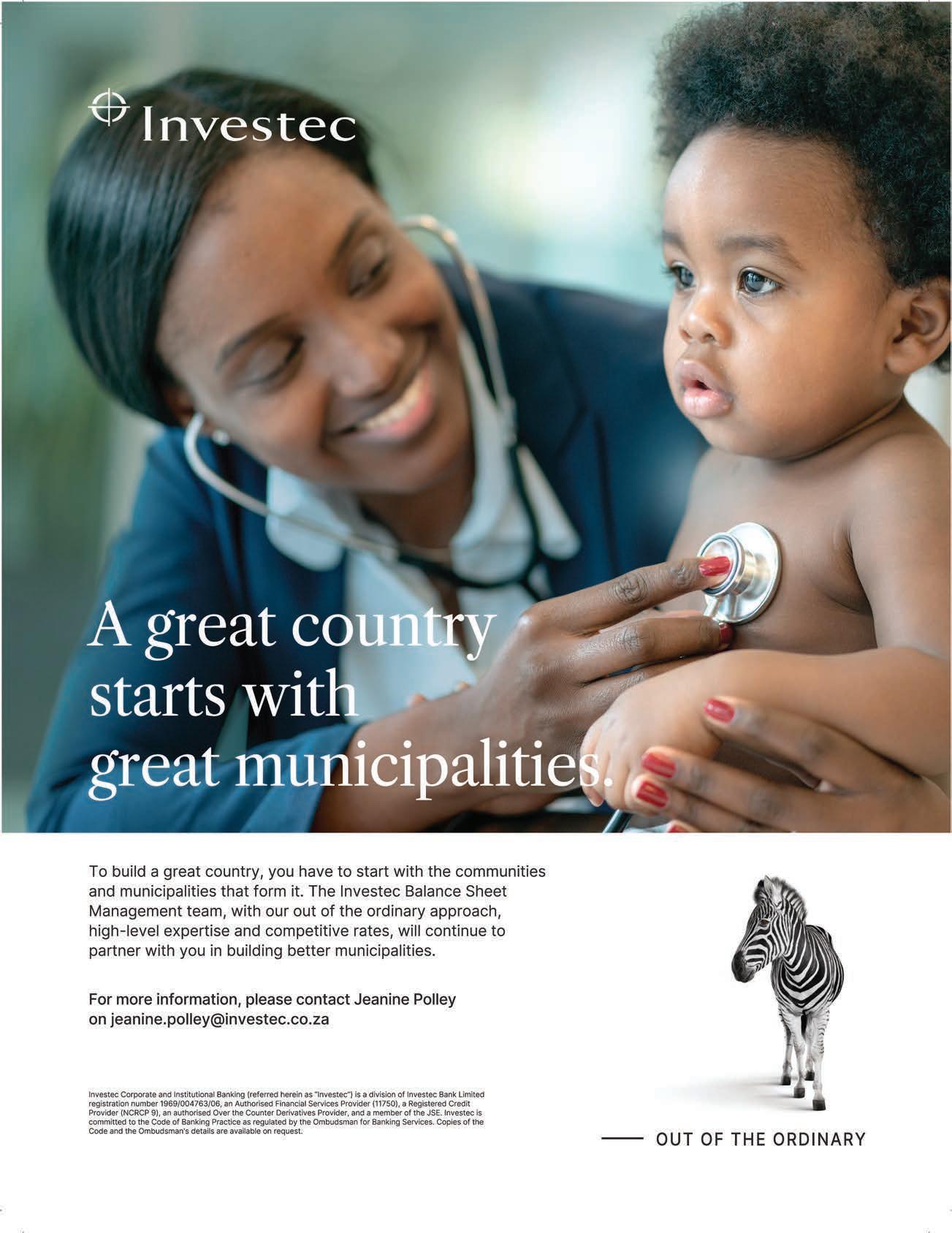


































































































































































































BONITAS MEDICAL FUND – with a footprint in nine provinces – has been providing access to affordable, quality healthcare to South African families for more than four decades
Living a healthy lifestyle and having access to quality healthcare has become a priority for South Africans. To achieve this, you must have the right support – nancially, mentally and physically. This is where making the right choice of you and your family’s healthcare cover is important.
“As the ‘Medical Aid for South Africa’, we have a wide and diverse membership, from all walks of life. In a nutshell: South Africans seeking quality healthcare at an affordable price,” says Lee Callakoppen, principal of cer of Bonitas.
This is why Bonitas introduced the Bene t Booster in 2022 – the most innovative change in the healthcare industry since the advent of the savings account. It stretches value and equates to an increase in day-to-day bene ts, giving members access to additional funds to use for out-of-hospital expenses at no extra cost.
“We strive to keep abreast of our members’ healthcare needs through extensive research and data analytics.
“This research helps guide us on how we adjust and balance the bene t enhancements and plan options to make sure we provide value to our members, while still ensuring contributions remain affordable. We believe several factors set us apart, one is having a member-centric approach to everything we do.”
“Essentially it is an extra out-of-hospital bene t, in addition to day-to-day bene ts or savings,” explains Callakoppen. Once activated, it covers all out-of-hospital
claims, including GP visits, acute and over-the-counter medicine, blood tests, X-rays and non-surgical procedures such as wart removal.
Members simply complete a wellness assessment – which can be done online, at a participating pharmacy or a Bonitas wellness day – to tap into the Bene t Booster, which provides up to R5 000 in additional funds. Claims will pay from this bene t rst, making a member’s savings and day-to-day bene ts last longer.
“There has been an intensi ed drive to detect, prevent or manage various chronic conditions as well as vaccinate against potential diseases and conditions,” says Callakoppen.
“We encourage members to use the free wellness screenings and tests on offer, this is one of the reasons we introduced the Be Better Bene t this year.”
The Be Better Bene t is funded completely from risk, and provides a range of screening tests, including an annual wellness screening per bene ciary to check blood pressure, blood glucose, BMI and cholesterol. Other bene ts include u vaccines, HIV tests, lipograms, mammograms, prostate screening, pap smears, pneumococcal vaccines, whooping cough boosters, HPV vaccines, stool tests for colon cancer, dental ssure sealants, online hearing screenings and contraceptives.
This bene t ensures members have access to necessary preventative screenings for early detection. It is available on all options, except BonCap.
“We encourage members to use the free wellness screenings and tests on o er, this is one of the reasons we introduced the Be Better Benefit this year.” – Lee Callakoppen

The prevalence of Non-Communicable Diseases (NCDs) has been increasing annually, as have mental health issues, which is a risk factor for NCDs and vice versa.
“At Bonitas, we offer support for NCDs through a range of care programmes, including audiology, HIV/AIDS, cancer, diabetes, mental health, back and neck, hip and knee replacements and hospital-at-home.”
Callakoppen adds that the Scheme remains focused on quality healthcare for members, affordability of contributions and nancial sustainability. “Our members remain the heart of our interactions and we strive to nd ways to amplify value and drive business development.
“Our focus on care, capability and reliability, encompasses providing our members with the tools and preventative measures to guard against chronic conditions and helps us rede ne healthcare for a new world. This includes helping members get value for money by stretching their bene ts and managing their medical expenses. It’s a win-win for their health and pocket.”




Greater civic engagement and participation is needed, especially from the
6 IN BRIEF: a roundup of political news from around the globe. 7 UNLOCKING AFRICA’S CREATIVE POTENTIAL: introducing the Cultural Vibrancy Index – a pivotal tool and barometer in understanding and navigating Africa’s creative potential and complexities.




Water equity: ensuring the business of water works.
Mitigating the further deterioration of local administrations.
Understanding the bene ts of the circular economy.
39 GAUTENG: The Johannesburg Development Agency celebrates 23 years of service delivery.
40 WESTERN CAPE: public toilet project in Cape Town city; and the Overberg Municipality’s successes.
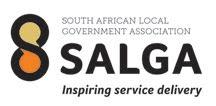
Senior Manager: Marketing & Communication: Tebogo Mosala
Communication & Marketing Officer: Marelda Boshielo
Marketing & Profiling Officer: Valerie Setshedi
Content Writer: Bonolo Selebano
PICASSO EDITORIAL & PRODUCTION TEAM
Content Manager: Raina Julies, rainaj@picasso.co.za
Contributors: Mohamed Abdelmegeed, Muhammad Ali, Cilliers Brink, Dr Harlan Cloete, Jacques Farmer, Brenda Fashugba, Ryland Fisher, Mpendulo Ginindza, Matthew Hirsch, Busani Moyo, Brendon Petersen, Jonathan Schroder, Tlou Sebola, Snothando Shezi
Copy Editor: Brenda Bryden
Content Co-ordinator: Natasha Maneveldt
Head of Design: Jayne Macé-Ferguson
Senior Designer: Mfundo Archie Ndzo
Advert Designer: Bulelwa Sotashe
Cover Images: Jacob Wackerhausen/istockphoto.com, The World Traveller/istockphoto.com, Borgogniels/istockphoto.com, Supplied
Sales Project Manager: Jerome van der Merwe, jeromem@picasso.co.za
Sales Team: Jacqueline Bezuidenhout, Natasha Hendricks, Frank Simons
Production Editor: Shamiela Brenner
Subscriptions and Distribution: Fatima Dramat, fatimad@picasso.co.za
Business Manager: Lodewyk van der Walt Lodewykv@picasso.co.za
Management Accountant: Deidre Musha
General Manager, Magazines: Jocelyne Bayer
Published by Picasso Headline, a proud division of Arena Holdings

Opinion piece: Quo vadis local government?
South Africa’s born-free generation breaks down their perspective on the country’s status for youth.
Bridging South Africa’s digital divide.
Re ecting on youth freedom and empowering choices.
42 TSHWANE: Recycling and housing project success.
44 LIMPOPO: Infrastructure development.

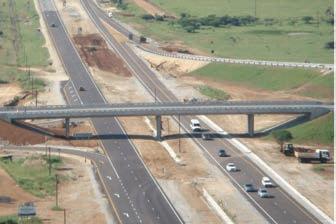
Hill on Empire, 16 Empire Road (cnr Hillside Road), Parktown, Johannesburg, 2193
Postal Address: PO Box 12500, Mill Street, Cape Town, 8010 www.businessmediamags.co.za
Printing: CTP Printers, Cape Town
Follow and like us to keep up to date with SALGA news.




Copyright: Picasso Headline and SALGA. No portion of this magazine may be reproduced in any form without written consent of the publisher. The publisher is not responsible for unsolicited material. Voice of Local Government is published quarterly by Picasso Headline. The opinions expressed are not necessarily those of SALGA or Picasso Headline. All advertisements/advertorials and promotions have been paid for and therefore do not carry any endorsement by SALGA or the publisher.
Municipalities are essential to democratic life because they enable people to participate in processes and decisions affecting their wellbeing. Greater civic engagement and participation is needed, especially from the youth, writes the SALGA Editorial Team
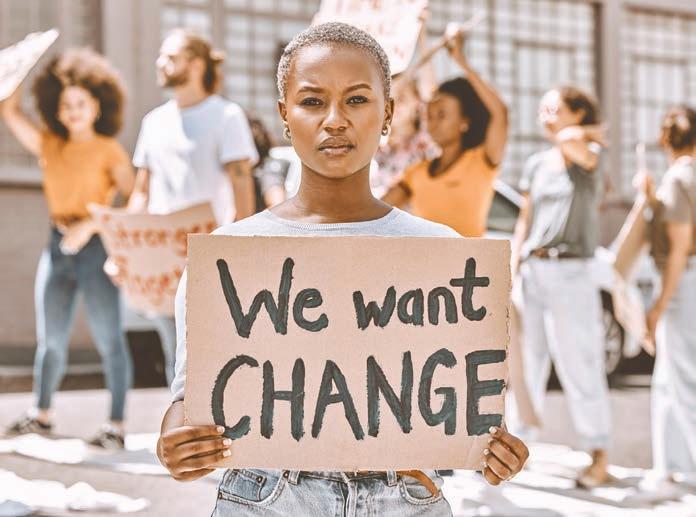
The role of local government in society becomes increasingly clear in the ever-evolving life of our democracy, which turned 30 this year. Since the dawn of democracy in 1994, municipalities are still better positioned than other levels of government to improve the lives of their residents because of their close proximity to people and communities.
Municipalities not only make sure that our homes have electricity, that the streets, sidewalks and pedestrian areas in our cities are clean and that we have access to basic services such as water supply and sanitation, but also create stable, safe and supportive environments that foster economic activity.
Beyond the polls, municipalities also enhance the rights of people to take part in the democratic process. Ward committees and integrated development planning forums are examples of local government structures where citizens and communities can get involved and generate action from the bottom up.
Ward committees and integrated development planning forums are examples of local government structures where citizens and communities can get involved and generate action from the bottom up.
Therefore, municipalities are essential to democratic life because they guarantee people’s enjoyment of their civil, cultural, economic, political and social rights while also improving their general wellbeing.
Young people in South Africa also made important contributions to the liberation struggle that led to the country’s current state of freedom and democracy, which is enjoyed by all who live in it.
Their roles as social and political actors are still vivid in the memory of South Africa’s nascent democracy. A prime example of the transformative power young people can achieve is the 16 June uprising of 1976, when black schoolchildren led protests and demonstrations against the apartheid government, radically changing the course of South African history.
Young people are still actively involved in civic engagement today. The 2021 municipal elections were held on 1 November 2021. Of the 9 473 council members elected, 2 969 (or 31 per cent) were between 20 and 39 years old.
Because of this, political parties are vital to ensuring that the youth engage in civic and political life. Young people need to be at the forefront of local programmes and policies that impact their lives and communities, in addition to seeing themselves re ected in elected representatives, as 42 per cent of registered voters in the national and provincial elections of 2024 were under the age of 40.
As we approach the 2026 local government elections, young people need to be more actively engaged in local affairs, from casting ballots at polling stations and taking part in ward committees and local governance structures to becoming the elected representatives of their communities in local councils.
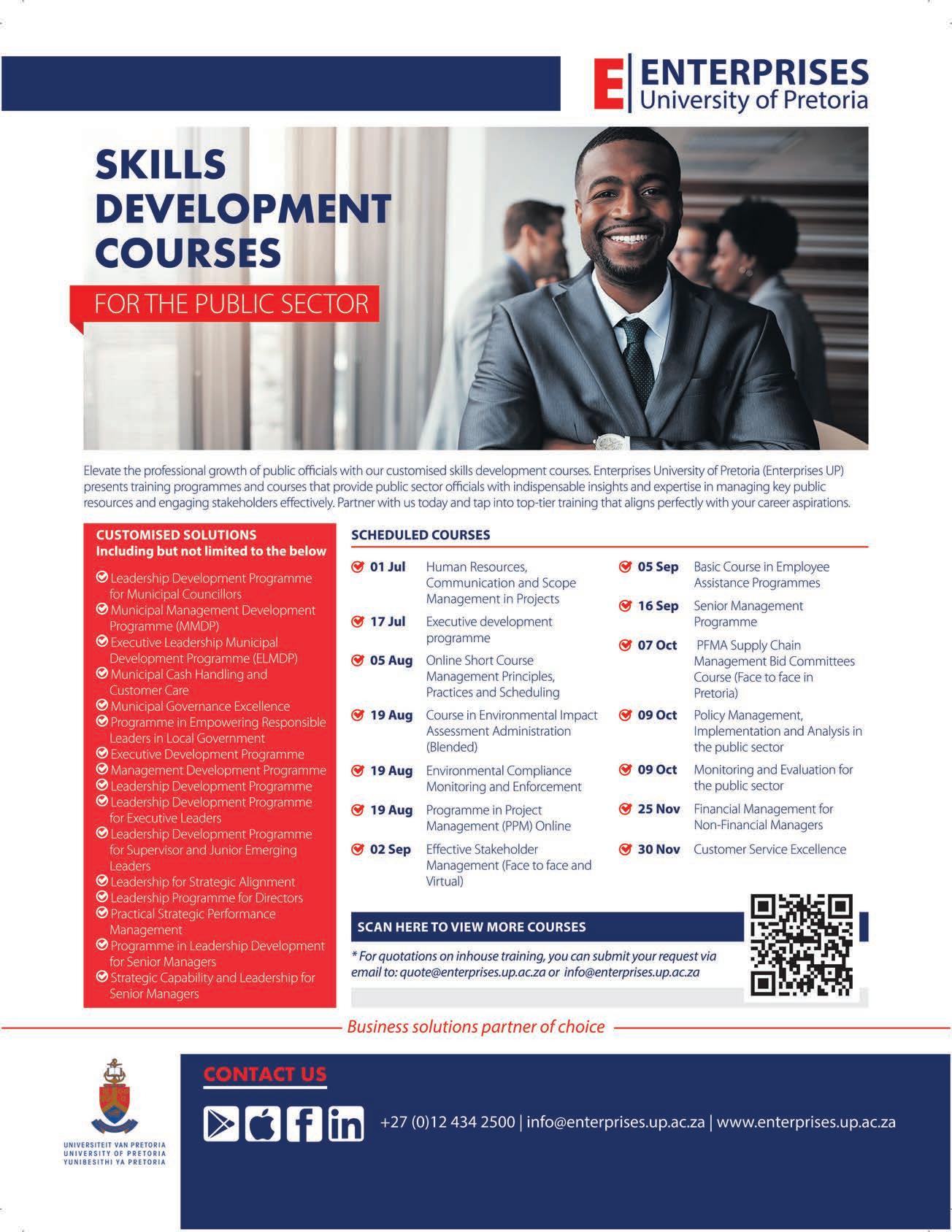
A roundup of news from the continent; Unleashing Africa’s creative potential and challenges.
The United Nations (UN) in South Africa welcomes the signing of the National Health Insurance (NHI) Bill into law and considers it a significant milestone in the journey towards universal healthcare that leaves no one behind. In line with social protection aspirations, the law is intended to ensure that all those who live in South Africa have access to quality healthcare services, regardless of their socioeconomic status, through the establishment of the National Health Insurance Fund (NHIF).
“In line with our Cooperation Framework, technical inputs and advocacy interventions with government, the UN believes that the inclusive and progressive implementation of the NHI law and other social protection measures will accelerate the realisation of the Sustainable Development Goals, particularly Goal 3.8 to achieve universal health coverage, including financial risk protection, access to quality essential healthcare services for all, and promote health and wellbeing across all ages,” said Nelson Muffuh, the UN resident co-ordinator in South Africa.
Dr Fabian Ndenzako, the officer in charge for the World Health Organization (WHO) South Africa, said: “The signing of the NHI law reaffirmed South Africa’s commitment to prioritise the health and wellbeing of its people. This has come in the wake of the country’s earlier endorsement of the most ambitious and comprehensive political declaration on health at the UN High-Level Meeting on UHC in September 2019 and again in September 2023.”
The UN wishes to reiterate the importance of ensuring that the NHI law is implemented in a responsible, accountable and consultative manner consistent with international human rights standards, including the right to health and the right to access affordable and quality healthcare services.


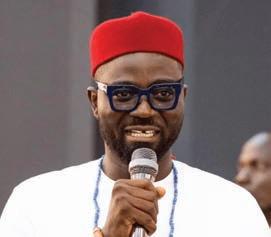
Thirty-eight-year-old Omobayo Godwins was sworn in as the new Edo State deputy governor on 8 April 2024. The Chief Judge of Edo State, Daniel Okungbowa, administered the oath of of ce at the Government House in Benin City, the capital of Edo in southern Nigeria.
Godwins, appointed by Governor Godwin Obaseki, hails from the Akoko-Edo local government area. He was born on 19 July 1986 and holds a bachelor’s degree in electrical and electronics engineering and a master of science degree in public administration, both from the University of Benin. He has professional experience in the oil and gas sector.
In his acceptance speech, Godwins expressed his gratitude to Obaseki for nding him worthy to serve as his deputy. “In the few critical months left to tidy up the work of this administration, my job as the deputy governor is clear and well cut out. I understand it clearly. In line with the oath of of ce to which I have just subscribed, I make a solemn pledge to do all in my power, with God’s guidance, to live up to expectations. I will give all it takes to meet the expectations of my principal, the party, and above all, the good people of Edo State,” he said.
Source: AfCFTA
Wamkele Mene, from South Africa, has been reappointed as Secretary-General for the Secretariat of the African Continental Free Trade Area (AfCFTA) by the African Union’s (AU) Authority of Heads and Governments.
He was re-elected for another four-year term at the African Union’s 37st Ordinary Session of the Assembly of Heads of States and Government in Addis Ababa, Ethiopia.
The AU stated that Mene’s reappointment demonstrates their con dence in him and that it felt honoured to have worked with him for the “Africa we want” – part of the AU’s Agenda 2063. Mene is the rst Secretary-General of the AfCFTA Secretariat, having served in that role since 2020, overseeing and facilitating the implementation of the world’s largest free trade area by membership. So far, some 47 countries have rati ed and deposited their instruments of rati cation for the free trade agreement.
Source: AfCFTA
Donors are set to announce their pledges for the International Development Association (IDA) 21st replenishment cycle in Seoul, Korea in December 2024. The pledging meeting is a vital opportunity to step up commitments and get the world back on track to eradicate poverty on a liveable planet. The IDA is the world’s largest global solidarity fund for the poor. It helps countries chart their own future.
The Republic of Korea’s journey from poverty to prosperity is a great example of IDA’s impact. In just six decades, Korea has transformed from one of the world’s poorest countries to a global powerhouse – from a gross domestic product per capita of just $158 in 1960 to $32 254 in 2022. Within a decade, Korea graduated from IDA and became an IDA contributor by 1977. The initial support from IDA played a catalytic role, propelling the country’s rapid transformation into a global innovation and technology giant.
Source: worldbank.co.za.
High-level Political Forum 2024
8–17 July 2024
Location: New York City, United States
Theme: Reinforcing the 2030 Agenda and eradicating poverty in times of multiple crises: the effective delivery of sustainable, resilient and innovative solutions.
The High-level Political Forum (HLPF) on Sustainable Development held under the auspices of the Economic and Social Council is the main United Nations’ (UN) platform on sustainable development. It has a central role in the follow-up and review of implementation of the 2030 Agenda for Sustainable Development and its sustainable development goals. SDGs. UN member states and representatives from civil society organisations participate in the HLPF.
The Sixth International Conference on Learning Cities 3–5 December 2024
Location: Jubail, Saudi Arabia
Theme: Learning cities at the forefront of climate action. The event will unite representatives of UNESCO learning cities from around the world and related stakeholders to discuss strategies for promoting climate action through lifelong learning. Info: learningcities@unesco.org
BRENDA FASHUGBA, regional lead: creative economy, sub-Saharan Africa, British Council, says the Cultural Vibrancy Index serves as a pivotal tool and barometer in understanding and navigating Africa’s creative potential and complexities, while sparking new opportunities
In recent years, Africa has emerged as a vibrant canvas for creative expression, marked by a dynamic fusion of tradition and innovation. This evolution has enriched the continent’s cultural fabric and opened economic and social development opportunities. However, the African creative landscape still confronts numerous challenges that hinder its full realisation.
The Cultural Vibrancy Index was developed in partnership with Africa No Filter, Creative Economy Practice at CCHub, with funding and support from the British Council. It was introduced at the SoCreative Summit earlier this year. The index is a pivotal tool in understanding and navigating these complexities.
As we celebrate the fth anniversary of the summit, it’s crucial to re ect on the profound insights and impacts derived from this innovative platform.
Africa’s creative sector is at a crossroads: rich with opportunities yet plagued by signi cant hurdles. On one hand, there is an undeniable surge in global interest towards African art, music, lm and fashion, seen in the increasing presence of the continent’s artists, musicians, lmmakers and designers on international platforms. On the other hand, the sector struggles with systemic issues such as inadequate infrastructure, limited access to funding and a lack of data that can attract further investment. Recognising these challenges, the British Council supported the development of the Cultural Vibrancy Index.
This innovative tool measures and maps the cultural activities of various African cities, providing a much-needed database of creative hotspots and events. It aims to furnish stakeholders – from local entrepreneurs to international investors – with reliable data to make informed decisions, thereby fostering a thriving creative economy.
At the British Council, we have long championed the creative industries as catalysts for cultural and economic growth and are committed to nurturing the creative potential of Africa’s youth. Through our Creative Economy programmes, we support growth and help form inclusive, sustainable creative businesses. These initiatives facilitate entrepreneurship, enhance skills and create market access opportunities. In addition to nancial support, we focus on building collaborative environments and ecosystems that nurture innovation and creativity.
Platforms such as the SoCreative Summit exemplify our efforts to enable young visionaries to lead and shape their futures. During the summit, discussions underscored the importance of the Cultural Vibrancy Index in solving Africa’s “database problem.”
For too long, the narrative around African creativity has been hindered by a lack of concrete data, making it dif cult to showcase and scale the sector’s true potential. The index changes this narrative by providing a comprehensive database that lists events, tracks
We have long championed the creative industries as catalysts for cultural and economic growth and are committed to nurturing the creative potential of Africa’s youth.
participation and measures the impact of creative activities continent-wide. This is crucial for attracting investment, supporting policy formulation and guiding creative enterprises towards sustainability and scalability.
marks Brenda Fashugba
While 2024 marks the last year of the SoCreative Summit, its legacy will endure through the SoCreative e-Learning platform, which will continue to support the creative economy by providing resources and learning opportunities accessible to all and stands as a testament to the ongoing commitment of the British Council to support Africa’s creative sector.

Designed speci cally for aspiring and early-stage young African entrepreneurs, this free online programme is a cornerstone of our broader Creative Economy initiative, aimed at fostering an ecosystem where young creatives can ourish. The e-Learning platform offers a structured curriculum that progresses from basic to intermediate levels, covering everything from the fundamentals of the African Creative Economy to more nuanced aspects of business operations and social impact.
The programme doesn’t just educate –it also connects participants to a broader support network through mentoring, coaching and potential incubation and acceleration opportunities within the British Council’s network across participating countries.
The journey of Africa’s creative landscape is one of celebration and challenge. As we leverage tools, such as the Cultural Vibrancy Index, we illuminate the path to greater economic empowerment and ensure the creative expressions of Africa are rightfully acknowledged and valued on the global stage. The future is bright, and with continued support and recognition, Africa’s creative industries will ourish, transforming challenges into opportunities for generations to come.

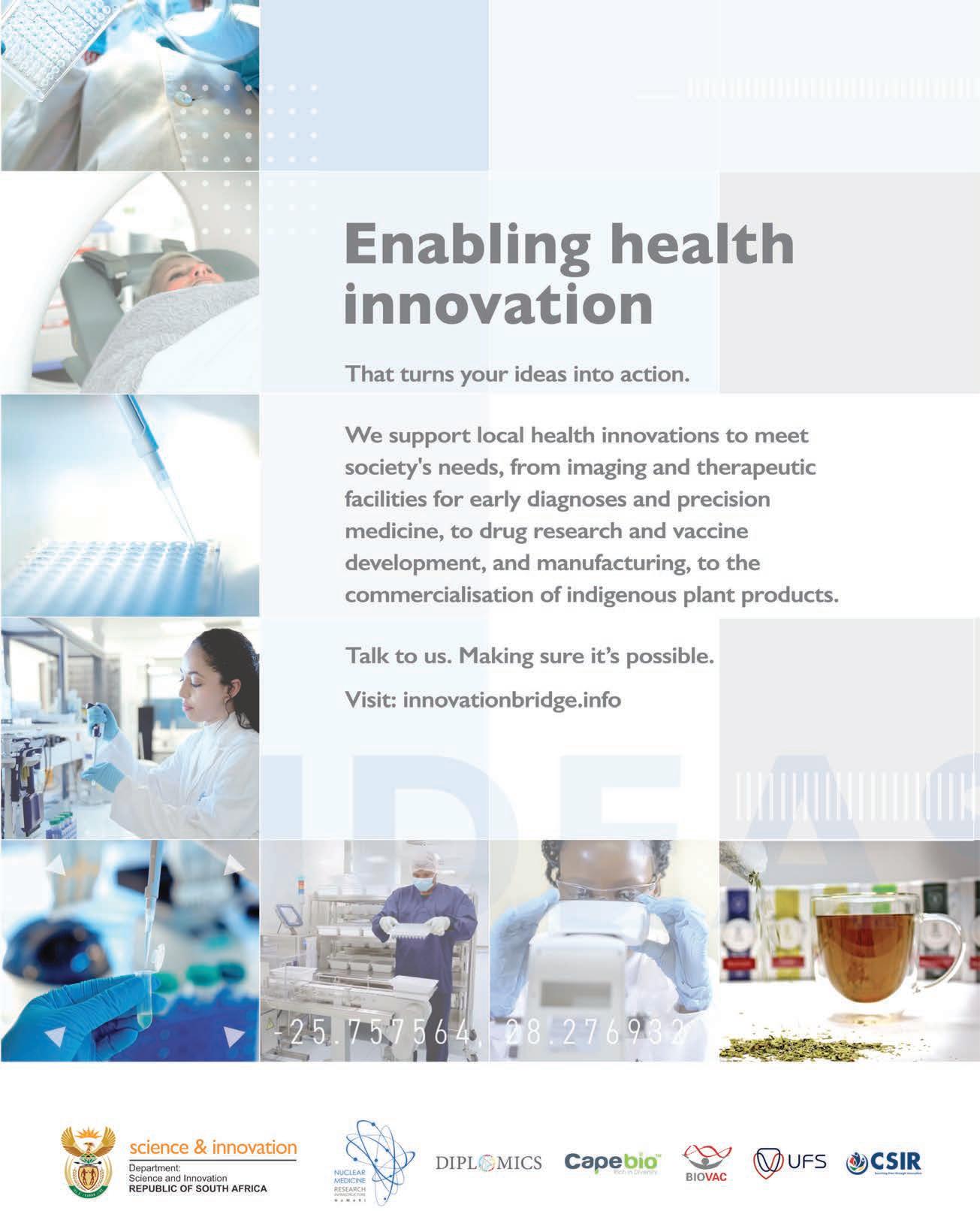
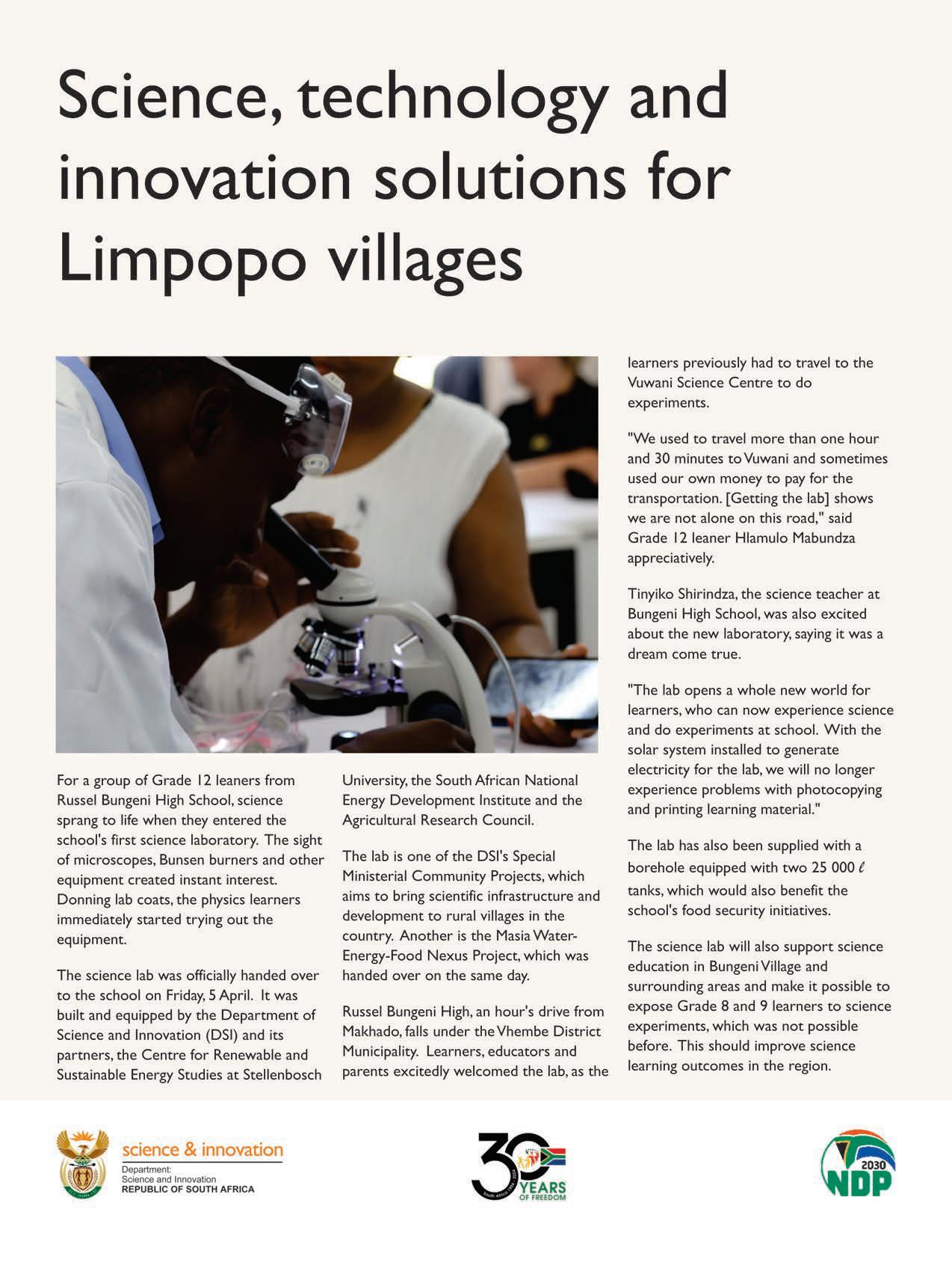
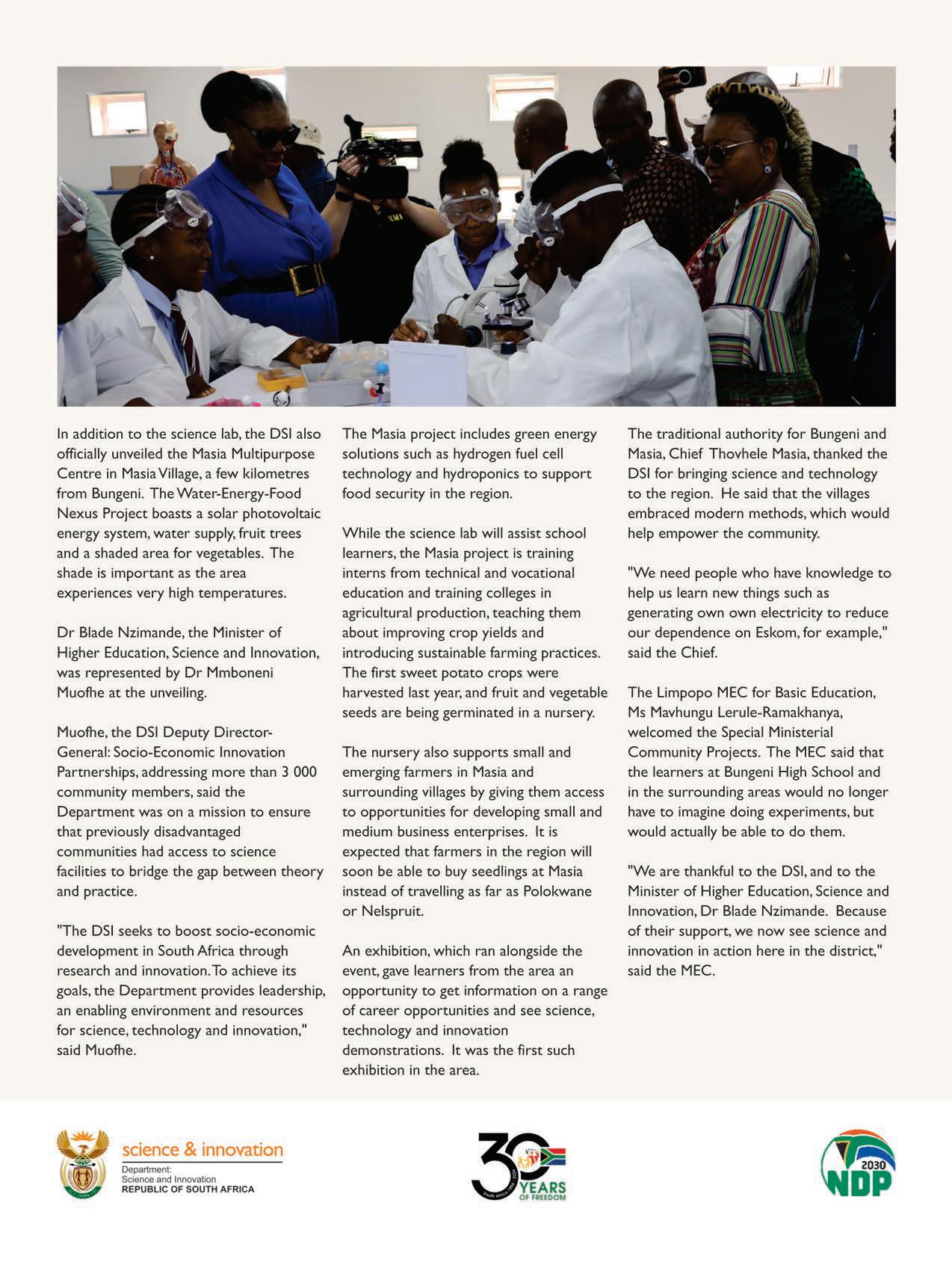


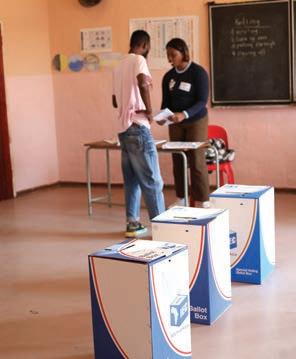
Young indigenous activists fight to save their languages and cultures | United Nations
WATCH

30 Years of democracy; Skills development; Water, waste and sanitation; ISO Standards; and Sustainability.
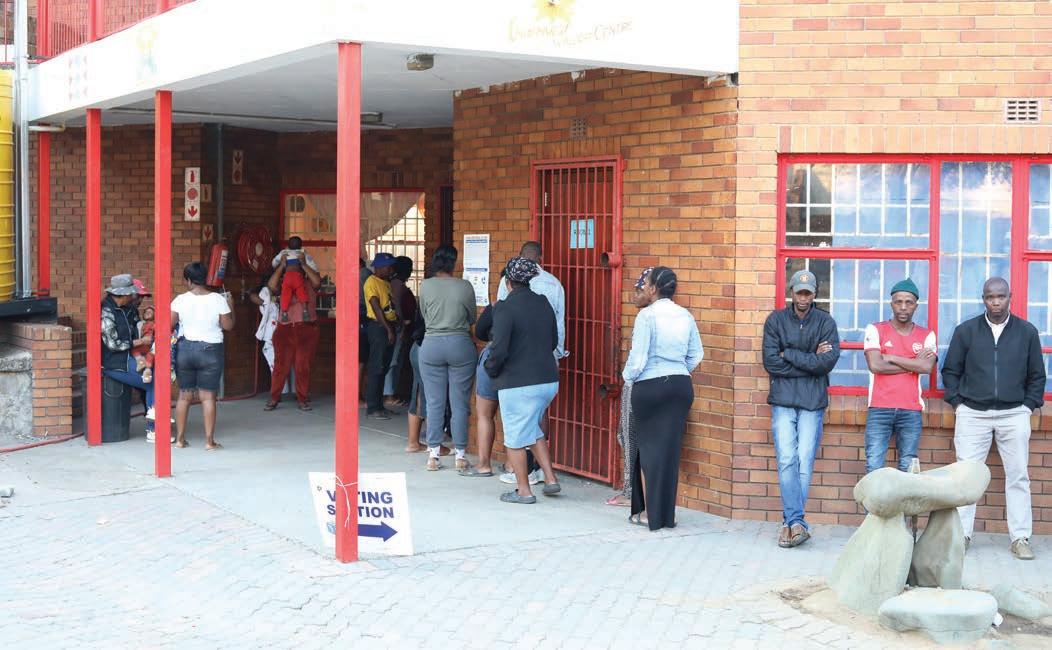
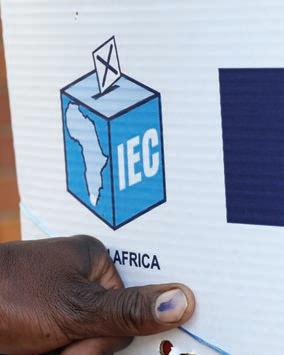
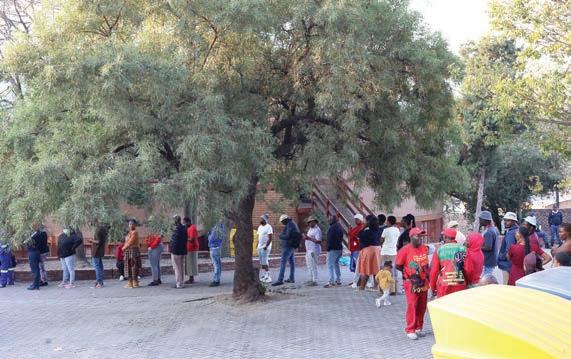
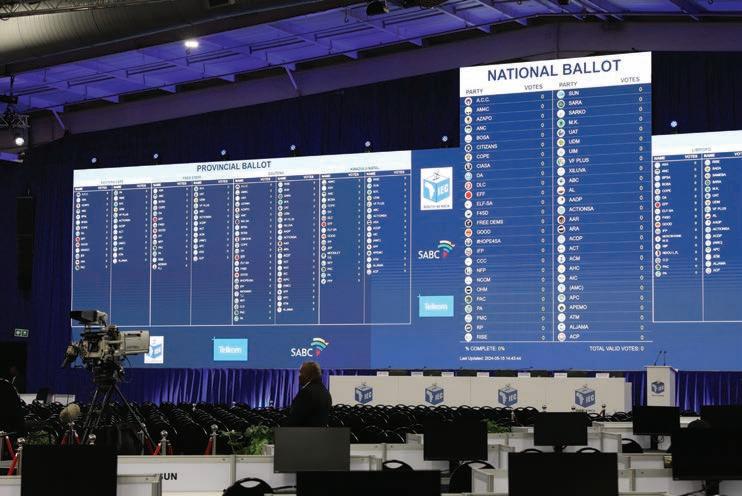
Even though South Africa’s democracy faces challenges as it turns 30, BUSANI MOYO discovers there is plenty to celebrate
This year marks 30 years since 10 May 1994, the day of unprecedented joy and jubilation as the founding father of South Africa’s democracy, Nelson Mandela, ascended the stage at the Union Buildings and delivered his inaugural presidential speech. It is indeed three decades since he declared: “We have, at last, achieved our political emancipation.” He added: “We pledge ourselves to liberate all our people from the continuing bondage of poverty, deprivation, suffering, gender and other discrimination.”
In his inauguration speech, Mandela made it clear that although South Africa had nally attained the freedom for which many paid the ultimate price, that freedom would be hollow without policy changes. As the country celebrates three decades of freedom, some questions come naturally. What successes can we celebrate in policy development and change? How has South Africa leveraged private-public partnerships for service delivery? How is active citizenry driving change?
Anyone who has followed the history of South Africa will agree that what happened in this country is akin to a miracle. However, many would argue that the miracle zzled away in the past 30 years, giving way to disappointment as the vices mentioned by Mandela in his speech, including “poverty, deprivation, suffering, gender and other discrimination”, are still stubbornly present.
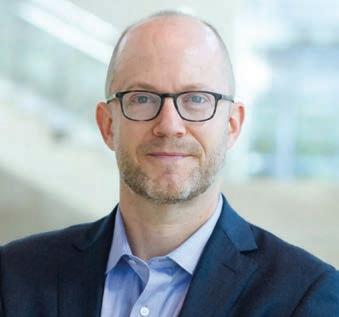
Evan Lieberman, a professor of political science and contemporary Africa at the Massachusetts Institute of Technology (MIT), believes that “considering where South Africa started in 1994, its progress has been nothing short of remarkable”. Lieberman, who is also the author of the book Until We Have Won Our Liberty: South Africa after Apartheid, explains: “Although South Africans’ increasing frustration with their government is borne out in public polling, critics who describe the country as a failed state completely miss the mark.”
If South Africa’s progress in the last 30 years is indeed nothing short of remarkable, where has the country succeeded in policy development and change? In a recent interview, Lieberman said: “South Africa’s constitution, which has protected the rights of its diverse population, has been remarkably successful in restoring respect for dignity in a country previously notoriously discriminatory along so many dimensions.” He adds: “There is, of
“South Africa has made significant strides since achieving freedom 30 years ago, thanks to its human rights-driven constitutional dispensation.” – Mawande Ndongeni
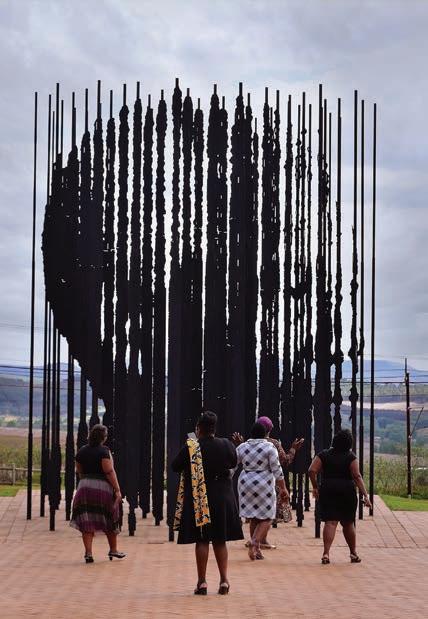
course, a long way to go, but people of colour and women have made huge gains in terms of economic and political power.” Mawande Ndongeni writes for the South African Government Communication and Information System. He agrees that South Africa has achieved remarkable progress in policy and change since independence. He attributes the success to the country’s constitution. Ndongeni writes: “South Africa has made signi cant strides since achieving freedom 30 years ago, thanks to its human rights-driven constitutional dispensation. This has translated into sound governance and impactful programmes that improve citizens’ lives.” Speak with any political analyst, and they will likely agree with Ndongeni that the country’s robust constitution is central to the policy achievements and
Statistics South Africa’s General Household Survey presents some numbers (between 2002 and 2021) showing the progress made in South Africa in the last 30 years.
• The percentage of individuals with no education decreased from 11.4 to 3.2 per cent.
• The percentage of households with an improved water source increased from 84.4 to 88.7 per cent.
• The percentage of households with access to improved sanitation increased by 22.4 per cent from 61.7 to 84.1 per cent.
• The percentage of households connected to the electricity grid from the mains increased from 76.7 to 89.3 per cent.
changes noted since 1994. For example, Lieberman says: “While some African countries consider new discriminatory laws against the LGBTQ community, South Africa remains broadly inclusive.”
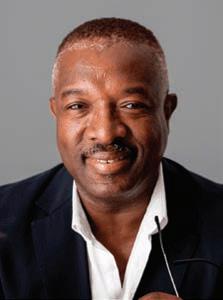
Solly Moeng, a reputation management strategist and media commentator who provides extensive commentary on South Africa as a brand, says: “South Africa certainly has some achievements we can be proud of.” He identi es social security as an excellent example: “The grant system also has provided a basic safety net for the most vulnerable South Africans, and this needs to be recognised.”
RECOGNISING THE POWER OF THE VOTE FOR ACTIVE CITIZENRY
Willian Gumede is an associate professor at the School of Governance at the University of the Witwatersrand. He believes awareness of the vote’s importance is central to the active citizenry. He says the main challenge is that citizens “view allegiance to political parties in the same manner they do their
“South Africans need to be more active on the political stage, realising that they have the power to elect and remove politicians based on whether they can deliver on the people’s aspirations.” – Professor William Gumede
soccer teams”. This results in people voting for a political party even though they know it will not deliver. “People should be willing to vote for a party even though they do not like it, as long as that party is likely to govern well,” he says.
Gumede is also the founder and executive chairperson of the Democracy Works Foundation. He believes that while “democracy has historically been the most successful model of governance”, it needs to be supported by effective state institutions and the rule of law. He says where the state fails, as has been the case in some South African municipalities, people don’t integrate and tend to retreat into their comfort zones, which is not good for an active citizenry.
Gumede suggests that had it not been for the private sector, South Africa could easily have degenerated into a failed state within the last 30 years. In this regard, Moeng, who is also the outgoing convenor of the United South Africa Movement, argues: “In essence, we haven’t been successful in leveraging private-public partnerships for service delivery.” He adds, “The prevailing approach from our governing party involves expecting the private sector to provide all the capital while retaining complete control over management and decision-making, which is fundamentally awed.” Moeng refers to the recently mishandled SAA-Takatso deal as an example.
What does the next 30 years hold for South Africa? This was the question posed to Gumede, who took a deep breath before answering. He believes if South Africa does not change its current trajectory, the next 30 years will be “hell on earth for South Africans”. Gumede says South Africans need to be more active on the political stage, realising that they have the power to elect and remove politicians based on whether they can deliver on the people’s aspirations.
For Ndongeni, there is hope. “Our journey since 1994 has proved that we are a nation that inspires hope for a better tomorrow.” Talking about the values South Africa aspires for, he says: “We value our people and we strive for equal opportunities, prosperity and individual dignity.” Referring to the resilience of the people of South Africa, he concludes: “Our unique experiences and diversity make us stronger as we work to build and fortify our nation.”
From the views of the analysts cited above, one thing is clear: the words of the former president of America, John F Kennedy, are relevant today: “Ask not what your country can do for you – ask what you can do for your country”. If every citizen were to take this question to heart, it would become clear to all that everyone has a role in shaping policy and change through active citizenry in the next 30 years.
the Democracy Works Foundation More about Professor Evan Lieberman’s book


As South Africa reflects on three decades of democracy, BUSANI MOYO traces the journey travelled by SALGA in assisting municipalities in delivering services at local government level
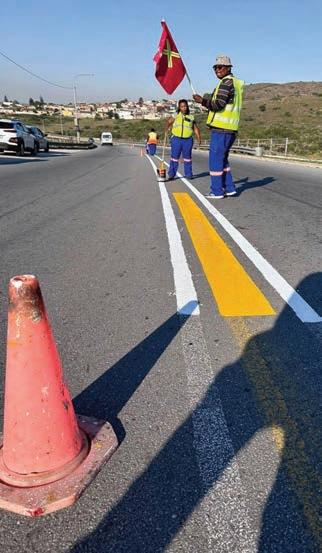
The 1994 South African election marked a signi cant turning point in the nation’s history, with the advent of a black majority government and the dismantling of legislated apartheid. However, the true transformation of the state would only commence in 1996, with the adoption of the new South African Constitution and the subsequent establishment of the South African Local Government Association (SALGA). Only with the drafting of the 1998 White Paper on Local Government would the mandate of SALGA become clearer.
As South Africa commemorates 30 years of democracy, SALGA celebrates 28 years of existence. This milestone presents an ideal opportunity to re ect on SALGA’s journey. What policies and programmes have been established to
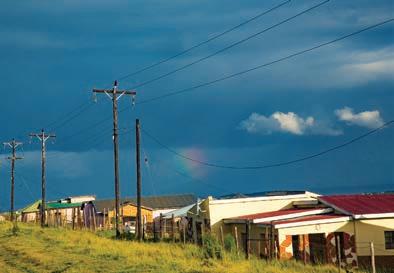

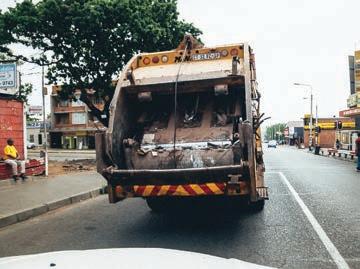
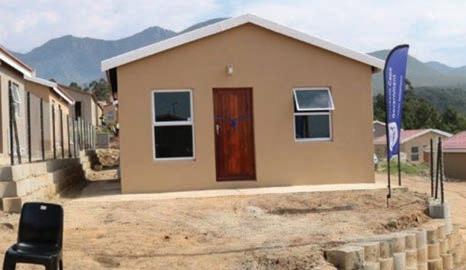
address service delivery issues at the local level since the adoption of the new Constitution? What challenges confronted SALGA initially? How were local government deliverables de ned at that time? And what are the current realities for South African citizens regarding local government wins and challenges, as per SALGA’s mandate?
Lance Joel is the acting chief executive of cer at SALGA. He agreed to tell the story of SALGA’s evolution over the past 30 years. Going back three decades to identify the main policies and programmes established to address issues around service delivery at the local level, Joel says the story started when the Local Government Transition
Act (LGTA) of 1993 became operational in February 1994. He explains that this act was “a step towards creating a local government that was more responsive to the needs of communities because the local government we had known at that time was essentially an extension of the national government”.
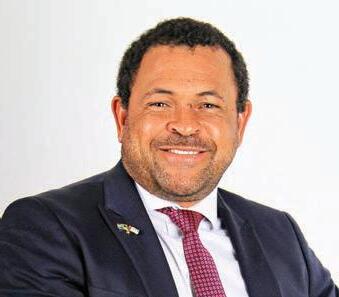

According to Joel, the main policies and programmes in the early days following the advent of the new government were not as much about service delivery. He notes that when South Africa was waiting for a constitution that was still being negotiated, the main programmes and policies aimed at “creating democracy at a community level”. Joel says this was when all stakeholders were still deciding what they wanted to do with local government. From his insights, it’s clear that the early years of local government were not necessarily about service delivery per se but more about the context in which service delivery would occur through a government sphere closest to the people.
Joel believes the main challenge SALGA confronted at its inception was managing the transformation of local government to eliminate the racial bias in service delivery so society could be integrated and municipal services redistributed to serve both high- and low-income communities. He suggests that the local government transformation project can be divided into three phrases:
• Interim: this phase was marked by the introduction of the LGTA in 1993, facilitating negotiating forums in local authorities pending the inaugural local government elections.
• First local government elections: even though the rst local government elections established integrated municipalities, they were not yet fully democratically elected.
• Establishing current municipalities: this phase began with the local government elections in 2000.
Joel says all these establishing blocks of local government were made possible by the adoption of the 1996 Constitution, which, for the rst time in South Africa’s history, created a wall-to-wall local government arrangement that established municipalities “for the whole of the territory of the Republic”. This solved the challenge of fragmentation in local
government, which was the order of the day during apartheid.
During the transformative phase of local government in the rst decade of democracy, Joel says there were no policies to talk about, but rather basic questions. At that time, he explains, there was an intent: “A general agreement we must create a government closest to the people to respond to the most basic needs of the people.” He adds that the de nition of local government deliverables in the rst 10 years was pretty basic. “When we were talking about the most basic needs, we are not talking about what the Constitution now is demanding; we were just asking do people have water, do they have electricity, can we have roads at a local level, can we have leaders, councillors at a local level to ensure that people have these basic needs?’,” he says.
In terms of numbers and the evolution of local government, Joel reports that the democratic government adopted 1 262 municipalities from the apartheid regime. Following the transitional elections in November 1995 and February 1996, these were reduced to about 840. The elections in December 2000 reduced the number of municipalities to 284. Today, South Africa has 257 municipalities.
Joel says the biggest win for SALGA in the last 30 years has been the organisation’s ability to “assist the government holistically to respond to the needs of the people”. He believes the organisation was pivotal in assisting local government in transitioning from apartheid to democracy. The acting CEO argues that South Africa was able to put “together institutions called municipalities” in these last three decades, one of the biggest realised wins. Therefore, the main win in this period was the facilitation of effective service delivery and the transformation that led to establishing the vessel through which services would be delivered: the municipality.
“The biggest win for SALGA in the last 30 years has been the organisation’s ability to assist the government holistically to respond to the needs of the people.” –Lance Joel
“The transformation of South Africa from a society rooted in discrimination and disparity to a constitutional democracy founded upon freedom, dignity and equality posed, and continues to pose, particularly profound challenges at the local government level,” observes SALGA. The organisation adds: “It is here that acute imbalances in personal wealth, physical infrastructure and the provision of services were and are often most patent.”
Professor Steven Friedman, director of the Centre for the Study of Democracy at the University of Johannesburg and Rhodes University and author of Prisoners of the Past, acknowledges the unequal society SALGA refers to. During a recent interview, he was asked to analyse the current realities for South African citizens. He believes the reality facing South African citizens today is that while SALGA may represent the local government in an era of democracy, “local government is uneven”.
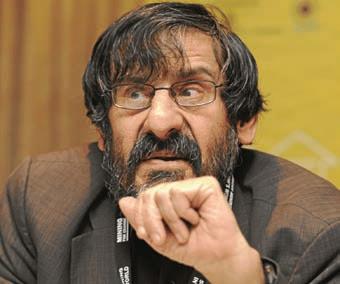
Friedman says there is a dichotomy in local government today. He supports his point by saying: “If you live in a suburb, you have the resources and access, which people in township settlements do not have.” Therefore, the people in the suburbs will make a fuss about service delivery and get their issues sorted faster than those in the townships who do not always have the platforms to make the same fuss. He argues that this is why the way local government responds to the different communities is very different. Friedman uses the example of power failures in the Johannesburg inner city, “which can sometimes take two or three weeks to sort out,” something that would never happen in the Sandton CBD.
He concludes: “If you live in Alexandra Township, your chances of having your service delivery problems xed are a fraction of that for someone who lives in Sandton only a few minutes away.”
Regarding the general feeling that South African municipalities have collapsed, Joel and Friedman agree that while there are problems, this is not an accurate assessment. Joel says for those who would like to take a paper approach, the last 30 years of local government have seen massive improvements as indicated by credible bodies such as Statistics South Africa (StatsSA). SALGA president Bheki Sto le cites gures showing the wins in his message entitled “Local Government Re ections on the 30 Years of Freedom and Democracy”.
• Access to electricity for lighting went from 58.1 per cent in 1996 to 94.7 per cent in 2022.
• Over four out of ve (82.4 per cent) households in the country have access to piped water, either inside their dwelling or in their yard.
• 98.4 per cent of households have sanitation, with 70.8 per cent having access to ush toilets.
• Two-thirds (66.3 per cent) of households in the country have their refuse removed by a local authority once a week.
Friedman believes that the prevailing assumption that local government in South Africa is collapsing is based on a failure to realise that when “we say people in townships do not have power, we do not mean that they do not have any power at all”, as was the case pre-1994. He explains: “If you are a black person in this country today and you are subject to stage 6 load shedding, you are still better off than you were under apartheid.”
“The reality facing South African citizens today is that while SALGA may represent the local government in an era of democracy, local government is uneven.” – Professor Steven Friedman
While Joel accepts that SALGA has largely managed to transform local government in South Africa in the last three decades, he says several concerns remain.
“While we as the representative voice of municipalities do not believe that local government has collapsed because we do believe that services are being rendered, we are concerned about four areas.”
• State of municipal governance: this concern is based on whether municipalities have the right administrative and political skills to lead.
• Continued nancial sustainability of municipalities: poor nancial controls coupled with inef cient resource use lead to waste in a context where obtaining those resources is often challenging.
• Lack of processes and systems: many municipalities still lack ef cient processes, policies and mechanisms to assist with service delivery.
• Infrastructure: the biggest challenge is the dilapidated infrastructure, particularly that which delivers water.
Joel and Friedman agree that the current reality for South African citizens is that municipalities are struggling. Many South Africans looking at the less-than-optimal service delivery in their communities will agree. Municipalities have also continued to lament the amount of money owed by the government, businesses and consumers, estimated to be over R300-billion.
In a recent interview, Parks Tau, the deputy minister of Cooperative Governance and Traditional Affairs (CoGTA), spoke about his department’s responsibility to assist struggling municipalities. He referred to the challenges municipalities face: “Against mandate, there are challenges, and we acknowledge these challenges.” In answering the question about how CoGTA is helping local governments deal with these challenges, Tau touched on some of the central challenges articulated by Joel. He said his department seeks ways of determining how to “enable councillors to be more effective in exercising their oversight function in terms of how the institution, which is the municipality and its administration, addresses issues.”
Regarding municipalities’ burdens, Tau commented: “We must continue functioning within the constitutional framework. The provincial government
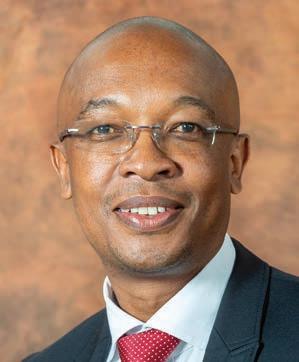
is the primary oversight institution of municipalities and therefore the intervening body in municipalities.”
He added: “That notwithstanding, our role as CoGTA is an intervention of last resort.” The deputy minister also says the national government is ready to assist when the provincial governments need help.
Regarding CoGTA’s programme to improve municipal performance, Tau said his department has “commissioned work to do a comprehensive review of the performance of local government to indicate where there are policy, systemic, or functional gaps” that need addressing. CoGTA Minister Thembi Nkadimeng is currently considering that report.
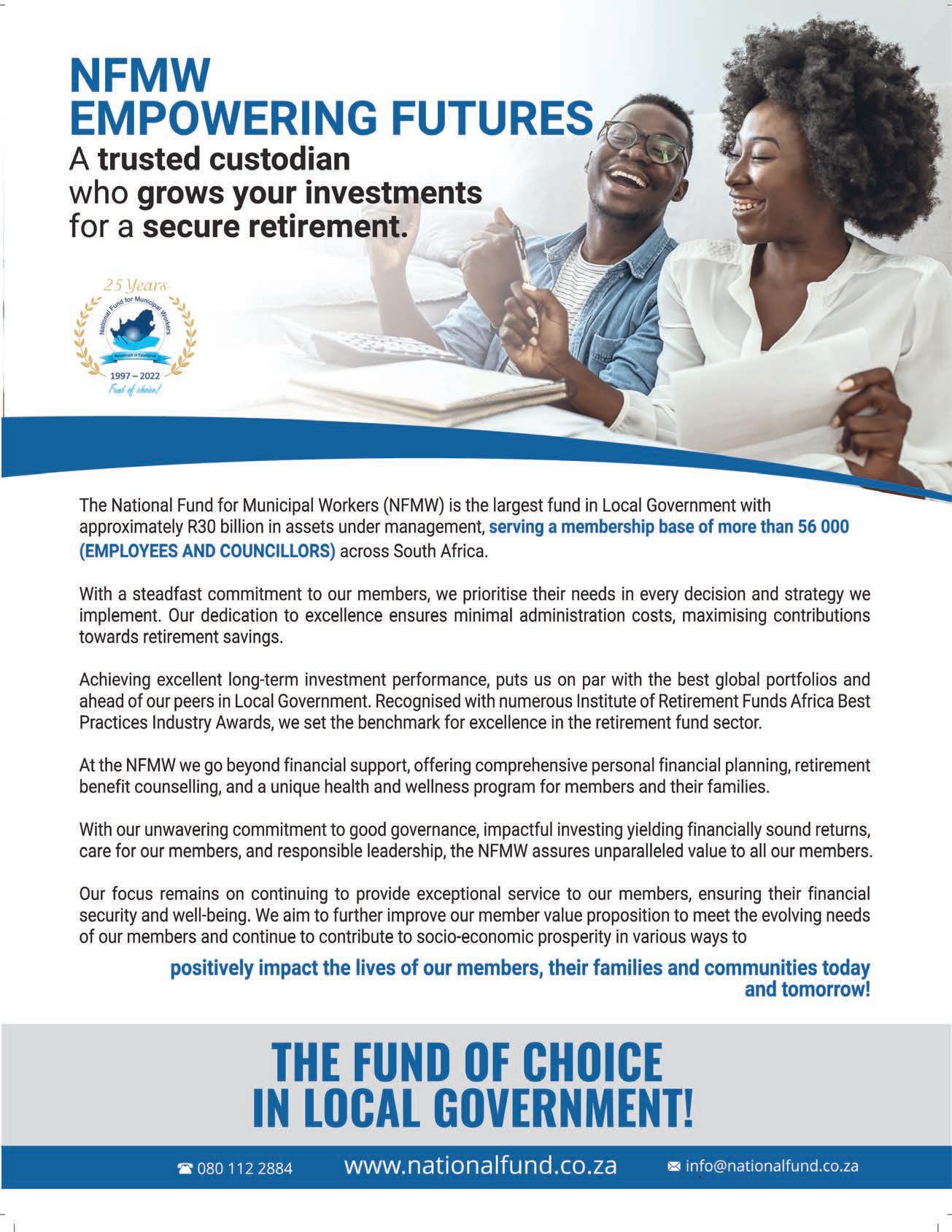
The form of governance closest to the people will continue to be volatile unless five urgent questions are addressed immediately, writes DR HARLAN CLOETE, a research fellow at the Centre for Gender and Africa Studies at the University of the Free State, founder of the Great Governance ZA podcast and founder member of community radio KC107.7 in Paarl
South Africa is the most unequal country in the world, as con rmed by a World Bank report in 2023. Municipalities – the sphere of government closest to the people – operate in an increasingly volatile, uncertain, complex and ambiguous environment, as witnessed by the almost daily service delivery protests and community perception of a corrupt, uncaring and incompetent local government. The increase in fragile local government coalitions since 2016 has only ampli ed the negative narrative.
Various reports from the of ce of the Auditor-General over the past decade concluded that unless the root causes of local governance (read behaviour) failures are addressed (inadequate skills and capacity and a lack of accountability and consequences), service delivery will continue to lag, compromising sustainable development, thus leaving local government incapable of addressing the wicked problems of poverty, unemployment, inequality and corruption.
The National Treasury, in 2022, noted that over the past ve years, more than R40-billion was allocated to programmes dedicated to building local government capacity. However, despite billions being allocated to local government, very little has changed in municipal capability (the ability to get things done). The result is that many municipalities have capacitated individuals, but the organisation remains incapable of functioning optimally. Internal capabilities, such as basic administration and procedures and documented
processes and control systems, in determining local government outcomes are often overlooked.
So, how do we x the governance mess we nd ourselves in and place local government on a more sustainable path?
The 2021 Municipal Staff Regulations provide our best opportunity to get this right. The latter sets an institutional framework to professionalise local government.
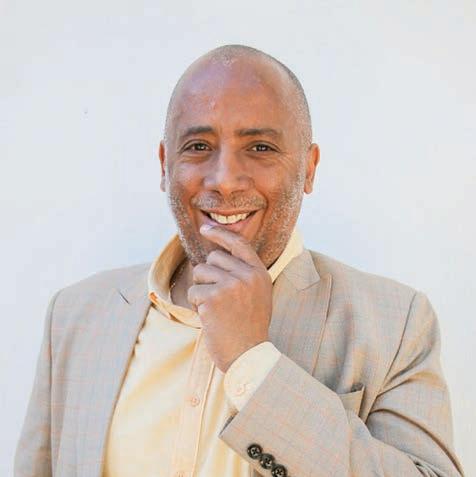
To ensure this is not just another failed policy, I researched and developed an evidenced-based governance implementation framework, Governance5iQ, structured along ve core questions that incorporate King IV governance principles.
1. Why do we do what we do (vision)? This allows the organisation to de ne the unique contribution and impact it wishes to make with speci c, measurable, achievable, realistic timeframe goals that are communicated to all levels of the organisation.
2. How is it being done (mission)? This allows the organisation to identify clear implementable plans (strategies) together with the standard operating procedures and policies. This section explains the organisational daily disciplines (day-to-day tasks).
3. How will we know at any given moment that we are on track (monitoring and evaluation)? This question incorporates monitoring and evaluation. The organisation needs
Unless the root causes of local governance (read behaviour) failures are addressed (inadequate skills and capacity and a lack of accountability and consequences), service delivery will continue to lag.
Dr Harlan Cloete

credible real-time data (evidence) on key indicators with analysis and monitoring routines involving all key stakeholders. This could include key performance indicators for all managers.
4. If we are not on track, what is being done about it (consequence management)? This question addresses the issue of consequence management. The organisation should set in place agreements on corrective actions to be taken that are re ned continually with a focus on innovative approaches to problem-solving.
5. How do we lead and learn (knowledge management)? The nal question addresses the issues of organisational leadership and knowledge management by questioning the organisational commitment to innovation and lifelong learning. This is achieved through a relentless pursuit of continuous improvement and high performance. Governance5iQ is a pragmatic approach functioning on two tracks that address local government’s capacity (competencies of individuals) and capability (factors impacting the organisational ability to get things done) to achieve sustained organisational performance and professionalism in local government.
Elzé van Achterbergh, Xolisa Gwadiso, Paul Fredericks, Nalia Jasmine Walsh, Mbalentle Lutya, Jordan Benson, Danté Davids, Cally Jaftha, Amber Julius, Tatum Leigh Russell and Faeeza Lok have one thing in common: they are all under 30 years of age, which mean they were born in South Africa’s democracy. They are also all passionate about South Africa despite the many problems we face as a society.
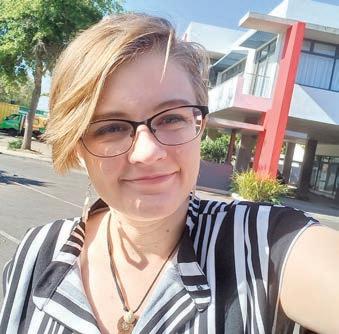
Van Achterbergh was born in Bloemfontein in 1997, but grew up in Bahrain and returned to South Africa to study at Stellenbosch University. She now lives in Kuils River, Cape Town. She describes herself as “a white South African with an Afrikaans family”. She says she has been diagnosed with autism, has an autoimmune disease and is a lesbian. “Obviously, this all affects how I experience and view the world.”
Van Achterbergh says she has to be positive about the future of South Africa. “No other country will accept me with my health issues. I would be agged as too much of a burden on their healthcare system,” she explains.
If she became president, she would focus on healthcare, queer rights, energy policy, the economy and rooting out corruption and crime.
Gwadiso was born in Cape Town in 1999 and grew up in Samora Machel township. He still lives in the township “for now”. He is completing his master’s degree in research psychology at the University of the Western Cape.
He realises that, through democracy, “we have had increased access that we never had previously. But at the same time, our access is limited by what one can afford. Historically speaking, the people who couldn’t always afford were people of colour. I had hoped democracy would have recti ed this issue in our country, but we still have economic apartheid”.
Gwadiso says he is positive about the future of South Africa and believes “the youth will have its grand uprising and take what is rightfully theirs”.
“I am well aware of the importance of experience, wisdom and overall know-how that some of our elders in society have. I’m always grateful for it, but many of our parliamentarians have not demonstrated good practice.”
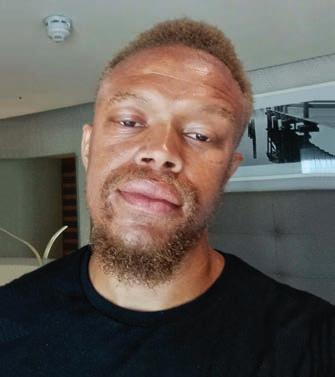
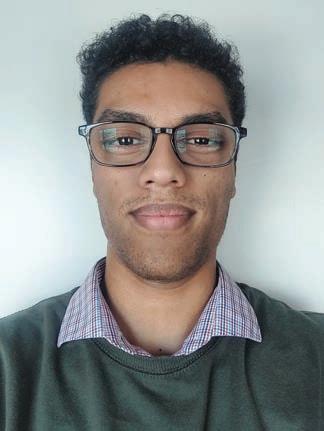
Fredericks is a 23-year-old BA humanities graduate who was born in Paarl. He grew up in Cape Town, lived for a while in Pretoria and now lives in Kuils River.
He says: “Our democracy has treated me well. We cannot forget our history and past as a country. We live in an amazing country with incredible citizens, and they have all contributed to a democratic society. I have de nitely bene tted. However, we cannot be ignorant as there are many my age and younger who are still dealing with the long-lasting effects of apartheid and not reaping the bene ts of what a democratic society ought to be.”
Fredericks says if the president focuses on “developing our strengths within an economic sphere (our agricultural and tourist industries) while trying to work on a plan to build on our weaknesses (unemployment, crime, poverty), we can de nitely move forward”.
“There are many my age and younger who are still dealing with the long-lasting e ects of apartheid and not reaping the benefits of what a democratic society ought to be.” – Paul Fredericks
Walsh is 20 years old and lives in Cape Town. She is pursuing a bachelor of commerce (general) degree at Eduvos. She says she was “born into a family facing the challenges of teenage pregnancy, which meant my parents had to juggle multiple jobs to support my brother and me. Despite the obstacles, they worked tirelessly to provide us with the best possible life”.
Walsh says South Africa’s democracy “has provided opportunities for growth and education, allowing me to pursue my dreams despite facing initial challenges. However, like many South Africans, I have also encountered obstacles such as limited job opportunities and economic instability”.
She adds: “While I recognise the achievements of the democratic government, a lot of the challenges we face are due to the inability to deal with corruption, poor economic policies, resulting in a lack of private investment and appointing incompetent people in crucial positions.”
She believes that more could be done for young people in South Africa. “Accessible education and job opportunities are crucial for empowering individuals to contribute meaningfully to society.”


Lutya was born in Groote Schuur Hospital in 2000. She now lives in Johannesburg, after moving there in 2019 to study towards a bachelor’s degree in education at Wits University. She is continuing her postgraduate studies at Wits.
“I lived with my parents in Khayelitsha during my formative years, but due to my parent’s nancial situation and working hours, I moved in with my grandparents in Monte Vista. This was probably the best decision for my life. I went to better schools, lived in a safer neighbourhood and my quality of life improved greatly.”
She feels that she bene tted from democracy initially, but “as I age and I start to be independent, especially in my eld, I would say less and less”.
Lutya says: “My passion for education lies in the public sector, but I have seen how corruption prevails in these spaces. I also see how educators are treated. We are losing many excellent quali ed teachers because we are not paying people what they are worth and are placing them in unideal working environments.”
If she became president, she says, she would put lots of effort and funding into education reform.
“We need resources, infrastructure, technology, increased salaries, training and education. This is not just for primary education, but also further education and adult education.”
“Accessible education and job opportunities are crucial for empowering individuals to contribute meaningfully to society.” –Nalia Jasmine Walsh
Benson grew up in Kewtown, Athlone, and now lives in Salt River. She has a diploma in public relations and communications from the Cape Peninsula University of Technology.
“I grew up in a three-bedroomed house with my grandparents (who raised me), my mother, my aunt and a few cats and dogs. I rst hated South Africa, but soon realised I did not know my country. Once I got to know South Africa – its beauty, its diversity and its people – my perspective changed.”
She believes democracy has treated her well. “I’m grateful I have the chance to walk freely, question systems and decide my worth and my path instead of having them chosen for me based on the colour of my skin.”
She believes that government should make more things free, such as education. “When I was in primary school, my parents struggled to pay my school fees. I would carry message books back and forth with notes from teacher to parent about outstanding fees. It made me feel like an expensive bill to be paid and I still feel that way today when I need to ask for help.”
Benson says she feels “nervously positive” about the future of South Africa.
“I’m grateful I have the chance to walk freely, question systems and decide my worth and my path instead of having them chosen for me based on the colour of my skin.” – Jordan Benson
Davids was born in Cape Town 25 years ago and has lived elsewhere in South Africa and in Brunei Darussalam and Australia. He is currently studying computer science in Amsterdam, the Netherlands.
Davids says his education was disrupted after he could not get into a South African university because none would recognise his International Baccalaureate diploma, even after it was approved by the South African Quali cations Agency. His studies at the Academic Institute of Excellence in
Salt River were cut short by the COVID-19 pandemic. He eventually moved to the Vrije Universiteit in Amsterdam, where he is currently completing his thesis.
Davids says the idea of democracy and different types of democracies is something he has researched thoroughly over the last few years as his interest in politics has grown.
“Being around for many Dutch elections has shown a clear example of a thoroughly developed democratic system that thrives on compromise and acceptance. It is unfair to compare the Dutch and South Africa. South Africa, as a democratic nation, is far too young to draw any conclusions of success or failure, but on the other hand, things have only worsened since I was born.
“South Africa’s democracy needs time to work before individuals can draw conclusions on whether it has helped them or not.”
He is positive about the future. “As the years go by and the scarred population embraces ideas free of shackles, we will witness a nation that can move freely toward the sunrise.”

Jaftha was born in February 2001. She grew up in Northpine, Cape Town and, after moving around a bit, is back in Northpine. She is studying towards a BA in humanities at Stellenbosch University.
Jaftha says: “I don’t think government is taking care of us. I say this because I have observed what happens before and after every election and until this day, I have not voted.
“Everything does not happen the way it was explained to the citizens, and we get
let down yet again. We are a democratic state, however, all of the representatives have their own agendas or a subjective view of what South Africa should be.”
She feels the main priority of the president should be to strengthen the economy and change the education system so it becomes more career-focused.

Julius, who graduated from the Cape Peninsula University of Technology with a bachelor of education degree, was born and raised in a rural community, Elsenburg, on the outskirts of Stellenbosch. She currently lives in Maitland.
She says because she was born nearly 10 years after South Africa became a democratic country, “I did not have rst-hand experience of inequality or the hardships of apartheid.
“However, the effects remain. Segregation is still very much an issue. Access is still a problem. Despite these challenges, our democracy has presented many opportunities that were not there before. I received a state bursary and was able to further my studies.”
She is positive about the future. “Every country has its challenges. However, it is up to us to advocate for what we believe would make our country, and the world, a better place in the future.”
Russell was born in 1995 and raised by a single mother in Athlone, Cape Town. She now lives in Centurion, Gauteng. She obtained a degree in fashion media in 2018.

She says she is privileged to have been born free and grown up with adults who were activists and pioneers in their industries. She says she is positive about the future of South Africa, “because I believe in our potential as a nation. With the right leadership and change of values and taking care of what we have (people, resources, infrastructure, and so forth) we have the ability to develop and grow as a nation.”
Lok grew up in Hong Kong (15 years) and studied and worked in South Africa. She is uent in English, Mandarin and Cantonese and is learning isiZulu. She studied food science and technology at the University of Pretoria. She currently stays in Fourways, Johannesburg.
Lok says South Africa’s democracy “has failed to provide me, as a woman, with the sense of safety, justice and opportunity that I deserve. The harsh truth is that, as a woman, it often feels like this country harbours animosity towards me”.

South Africa: a nation divided? By BRENDON PETERSEN
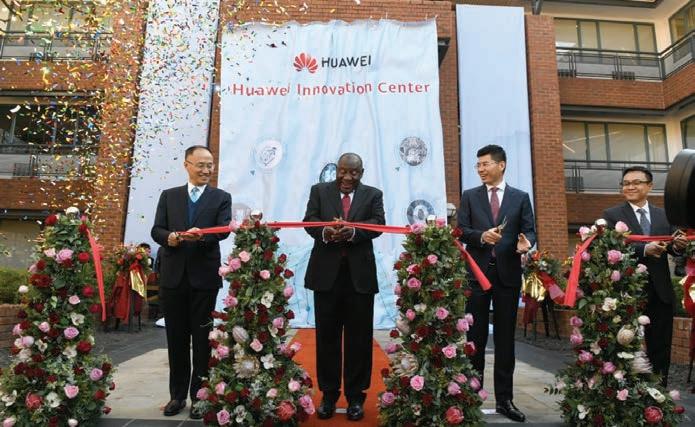
During the past 30 years the country’s technological landscape has undergone a transformative journey marked by both progress and persistent challenges. In the pre-1994 era, access to technology was overwhelmingly skewed towards the privileged white minority, leaving the majority of the population, particularly in the townships and rural areas, severely underserved. However, in the post-apartheid era, the government and private sector have made concerted efforts to bridge this digital divide and harness the power of technology to drive inclusive growth and development.
The COVID-19 pandemic has laid bare the stark realities of this digital divide, as the sudden shift to remote work and online learning exposed the vast disparities in access to infrastructure and digital literacy. While af uent communities were able to transition seamlessly to the digital realm, many township and rural residents
found themselves left behind, unable to participate fully in the digital economy.
South Africa’s fourth industrial revolution (4IR) strategy has sought to address these challenges by focusing on skills development, infrastructure investment and fostering innovation within previously marginalised communities. One example of this effort is the Huawei ICT Competition, an annual event that has become a powerful platform for nurturing and showcasing the country’s tech talent.
“In 2022, we made really good progress,” says Shawn Huxiaotong, Service & Delivery and Talent Ecosystem director at Huawei Enterprise South Africa. “To date, more than 72 academic institutions have enrolled in the programme across all nine provinces, with more than 2 700 students and lecturers participating in Huawei ICT certi cation training, and more than 2 100 students obtaining Huawei certi cates.”
While a uent communities were able to transition seamlessly to the digital realm, many township and rural residents found themselves left behind, unable to participate fully in the digital economy.
The competition has not only provided students with valuable skills and certi cations, but also served as a springboard for their careers, with several participants going on to secure employment in the tech industry.
“I would’ve never imagined that what started as a simple interaction with Huawei at Wits during a career fair would turn out to be perhaps the single most important interaction I would have in probably my entire academic career,” says Golden Mthimunye, a top achiever in the Networking category.
While initiatives such as the Huawei ICT Competition are making strides, the challenge of bridging the digital divide remains daunting. As Arthur Mukhuvha, general manager at the MTN Foundation, notes: “Theft and vandalism of network infrastructure has been one of the biggest challenges faced by MTN over recent years.” To combat this, the telecommunications giant partnered with the Gauteng Provincial Community Police Board to support community policing forums and implement stringent security measures at their network sites.
Beyond just infrastructure, MTN has also focused on digital literacy and skills development, launching the MTN Skills Academy. This platform offers free access to online learning and career
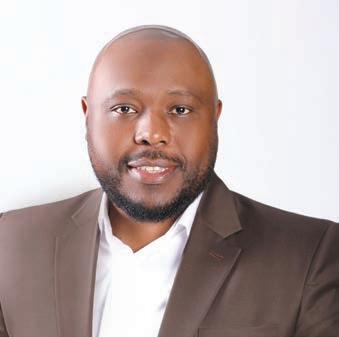
guidance, targeting youth, women and entrepreneurs in the ICT sector. “It gives young people access to free career guidance and digital and nancial courses via an MTN web-based platform and to develop and improve entrepreneurial skills, knowledge and business practices for small businesses within the ICT sector,” Mukhuvha explains.
The impact of these initiatives is beginning to bear fruit with stories of entrepreneurs in connected township communities leveraging digital services to create new economic opportunities. One example is the MTN Women in Digital Business Challenge, which provided 10 female-led small and medium enterprises (SMEs) with R100 000 each in working capital, business development support and mentorship.
“Each SME received training, small business support and coaching and entered a four-month mentorship programme to ensure effective deployment of capital and resources, further accelerating their business and rate of success, or the opportunity and tools to create future businesses that are robust, innovative and able to succeed in a challenging and ever-changing landscape,” Mukhuvha comments.
However, the digital divide is not solely a challenge of access and infrastructure.
As Clayton Naidoo, senior director at Cisco, points out: “There is certainly a gap between medium-income households and marginalised communities. The reason for this is largely access to internet and technology.”
Naidoo emphasises that the lack of exposure to technology and industry in marginalised communities has limited the career aspirations of many young people.
“Traditionally, if a community hasn’t been exposed to the industry, the career desires of youth speci cally become limited to
“There is certainly a gap between medium-income households and marginalised communities. The reason for this is largely access to internet and technology.” – Clayton Naidoo
doctors, lawyers, engineers, and so forth – mainly because this is what they’ve been exposed to from a career perspective.”
To address this, Naidoo says Cisco has focused on its impact initiatives, such as the NetAcad programme, which aims to bring digital skills training to deeply marginalised communities through partnerships with nonpro t organisations and libraries. “We have something called the talent bridge programme, so if a student is certi ed in cybersecurity, the platform can match their pro le to job opportunities in the Cisco partner ecosystem globally.”
The need for continued investment and innovation in the digital space is clear. Partnerships between the government, private sector and communities will be crucial in ensuring that the bene ts of the 4IR are distributed equitably and that no one is left behind.
“Effective public-private partnerships and policies to holistically support the digital economy could yield competitiveness, growth and jobs in South Africa,” Mukhuvha says.
“The newly announced Gauteng Broadband Network partnership between MTN and the Gauteng government is aimed at digitising township economies and will see an enormous growth in economic participation.”
One key area requiring urgent attention is the affordability of data and digital services. While MTN has made strides in reducing data prices and introducing more exible, affordable offers, the cost of connectivity remains a signi cant barrier for many township residents.
“Data is the new currency, this means consumers rely on our services to connect for schooling, work and
“Theft and vandalism of network infrastructure has been one of the biggest challenges faced by MTN over recent years.” – Arthur Mukhuvha
transacting business. The enabler to better connectivity and data affordability is the modernisation of our network,” he explains. “MTN will continue to modernise its network to ensure that every South African gets seamless connectivity, which ultimately enables them to perform businesses, attend online school and work everywhere they are.”
Beyond just connectivity, there is a pressing need to address the digital skills gap, particularly in areas, such as coding, cybersecurity and data analysis. Initiatives, such as the MTN Skills Academy and Cisco’s NetAcad programme, are steps in the right direction, but more can be done to ensure that township residents have access to high-quality, industry-relevant training.
“Besides digitising education and equipping our entrepreneurs in townships with required digital skills, we believe there is a lot companies could do to contribute to the township’s gross domestic product and the country as a whole,” Mukhuvha says. “Over the past three decades, we have embraced a different perspective, recognising that realising the aspirations set at the dawn of our democracy requires us to work hand in hand with government.”
Through forging innovative partnerships, MTN and Cisco have enhanced their service to customers and contributed to the overall development of the country. The recently announced Gauteng Broadband Network partnership is a prime example of this collaborative approach, which aims to digitise township economies and drive economic growth. As South Africa looks towards the next 30 years of democracy, the need for continued investment and innovation in the digital space is clear. By harnessing the power of technology, the country can drive economic growth, foster greater social inclusion and uplift the lives of its citizens, particularly those in historically disadvantaged communities.
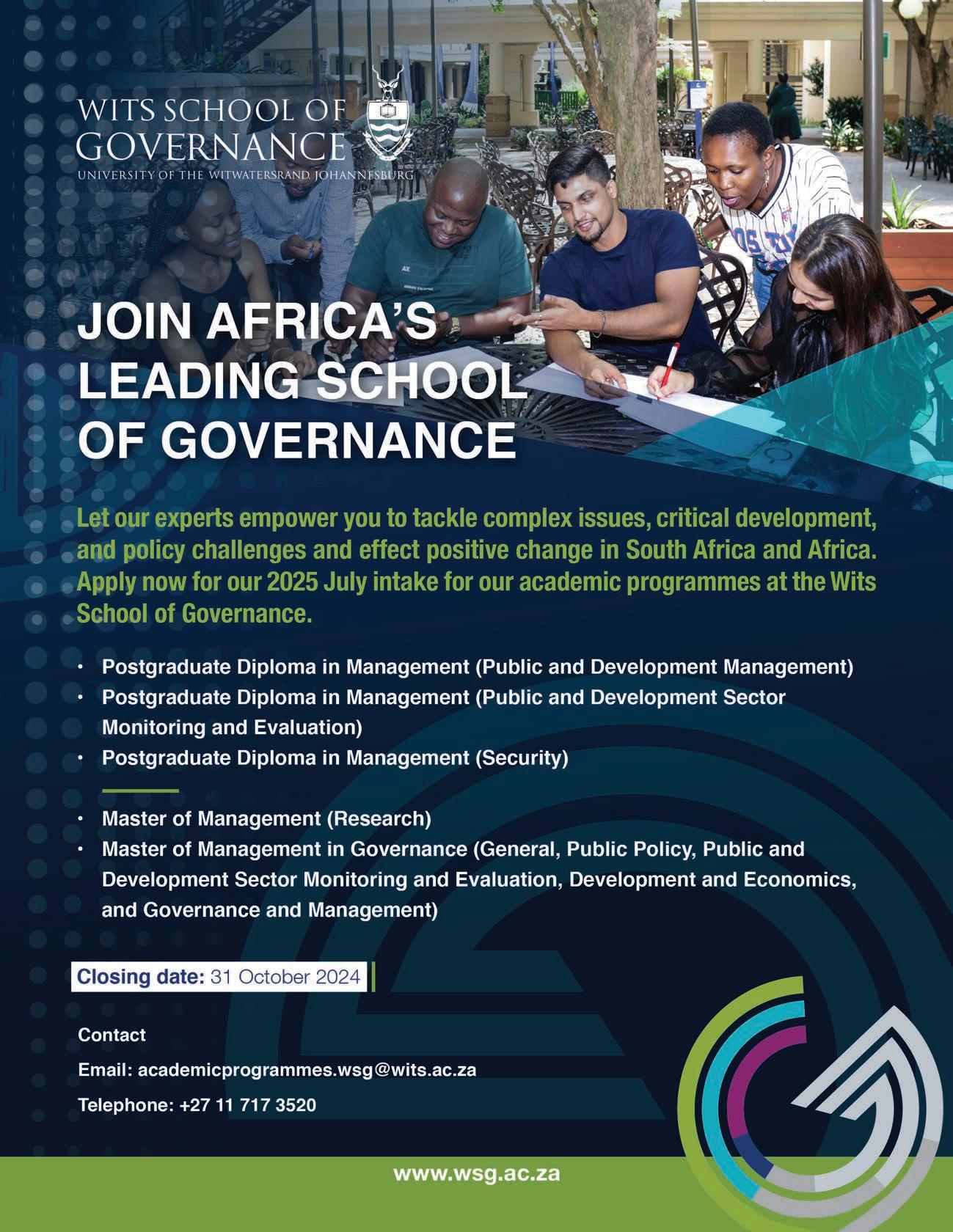
Thorough financial management practices are crucial to the long-term sustainability of municipalities, writes the WITS SCHOOL OF GOVERNANCE
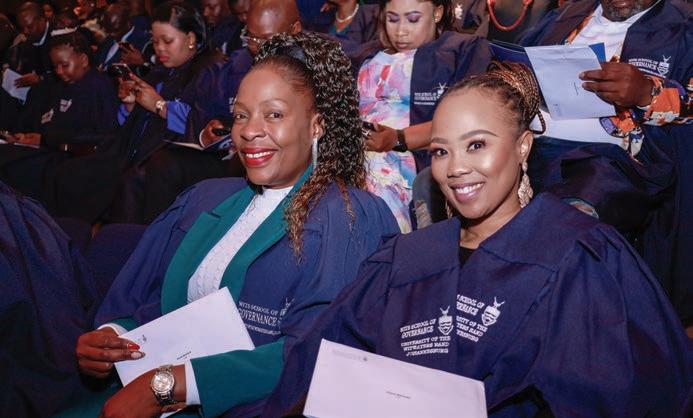
The Wits School of Governance offers the Municipal Finance Management Executive Course to equip senior staff in local government with practical and professional skills to promote ef cient, accountable, equitable and sustainable management of South Africa’s public nances.
Nembra Maluleke, a graduate of the programme works as a prepaid metering manager at Johannesburg Water. She completed the Municipal Finance Management course at the Wits School of Governance in 2023.
“As the prepaid section our core responsibility is to collect revenue through prepaid meter connections. The job entails daily management and administration of staff according to organisational policies.
“We must ensure that customers with prepaid meters are able to access water
via vending points. I have been in this role for a year now and love the opportunity of adding to the objectives of the City of Johannesburg, which is to collect revenue and provide quality water to the city’s residents,” Maluleke says.
She explains that South Africans need more knowledge on prepaid water and its bene ts. Similarly to prepaid electricity, consumers purchase water credit in the form of a prepaid water tokens. “When entered into the User Interface Unit (located in the consumer’s home), the token instructs the water management device to allow a certain amount of water through the meter before closing. Consumers can track usage, load credit remotely, and decrease the possibility of bill shock due to leakages or incorrect monitoring,” Maluleke says.
She says she did this course at Wits because as a leader in the municipal entity,
“I have learnt to apply a strategic level of financial management and allocation of resources to meet the service delivery needs of our citizens.” – Nembra Maluleke
it is vital to be equipped with the right knowledge about all the acts and policies governing the municipality to be able to provide service to the people of the City of Johannesburg.
Maluleke adds that studying helps one develop critical skills, including decision-making, mental agility, problem-solving and logical thinking.
“Education contributes to greater productivity and creativity. I have learnt to apply a strategic level of nancial management and allocation of resources to meet the service delivery needs of our citizens. As employees of the City of Johannesburg, we need to align whatever we do in terms of our everyday duties with the City’s strategic goals and objectives,” she adds.
Join Africa’s leading school of governance and enrol for one of our Executive Education Courses currently on offer.
• Monitoring and Evaluation.
• Leadership Development for Corporate Affairs and Government Relations.
• Government Communications and Marketing.
• Infrastructure Planning and Project Management for Provincial Governance.
• Leading and Managing State Energy Complexities.




We celebrated Freedom Day on 27 April but AWARE.ORG urges the nation to reflect on the true meaning of freedom for today’s youth
While the shackles of apartheid have indeed fallen, many young people still face signi cant challenges that limit their opportunities to thrive. Poverty, social issues and lack of access to positive in uences can, and do, signi cantly impact their wellbeing. Freedom, in its truest sense, empowers young people to make informed choices and navigate their world with con dence and a sense of safety.
In the face of these challenges, Aware.org recognises that true freedom extends beyond mere celebration – it lies in the ability of young people to navigate their world with con dence, equipped with the knowledge and tools to make empowered choices. Through its #NOToUnderageDrinking pillar, Aware.org is committed to fostering a culture of responsible decision-making among South Africa’s youth.
“Our mission extends far beyond mere celebration on Freedom Day,”
Aware.org is committed to fostering a culture of responsible decision-making among South Africa’s youth.
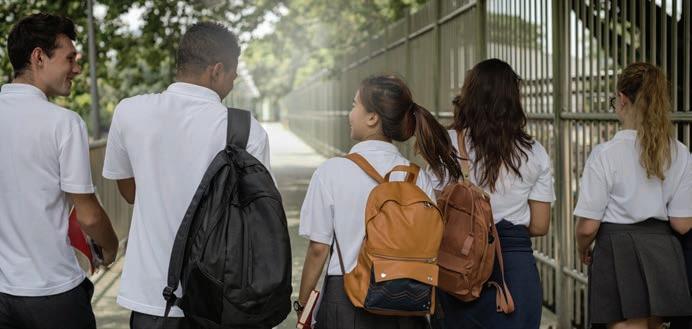
says Carmen Mohapi, managing director of Aware.org. “We believe that true freedom is about empowering young people to make informed choices that positively impact their lives and the lives of those around them.”
The Aware.org #NOtoUnder18 programme delivers education, awareness and interventions that combat underage drinking. By partnering with schools and communities nationwide, Aware.org provides targeted interventions that equip young people with the necessary skills to resist the pressures of partaking in alcohol consumption. Positive role modelling, life skills training and sports and academic support activities foster holistic development and empower youth to make responsible choices.

Statistics suggest that nearly half (49.2 per cent) of South African high school students have consumed alcohol.
Source: Aware.org

In its ongoing mission to reach youth where they are, Aware.org launched an innovative project on the popular gaming platform, Roblox. Recognising that traditional media channels can be saturated with marketing noise, Aware.org seeks to engage youth in spaces they already frequent. The gami cation experience on Roblox will focus on promoting responsible life choices.
The game, “Roville: The Lost Items”, is available through various platforms, including the app stores, online and desktops. It is speci cally located within the digital suburb of Roblox called RoVille. Players must download the game to participate in the immersive experience.
“It is essential to re ect on the freedom we must safeguard for future generations,” says Mohapi. “By empowering our youth to make responsible choices, we not only protect their wellbeing, but also contribute to their freedom to live a healthier, more vibrant life.”
Aware.org invites all stakeholders – from parents and educators to policymakers and the broader community – to join its mission to say #NOToUnderageDrinking and create a brighter tomorrow for South Africa’s youth.
The game, “Roville: The Lost Items”, is available through various platforms, including the app stores, online and desktops.
“Underage drinking is a persistent challenge demanding innovative solutions,” says Mokebe Thulo, head of brand at AWARE.org. “By launching RoVille Rescue, we’re reaching out to young audiences right where they are. This initiative empowers them to make informed choices about alcohol consumption. Together, we can crush underage drinking and build a future free from its harmful effects.”
In today’s age, when global media drowns out traditional communication channels, RoVille Rescue is an appealing media choice for adolescents who are exposed to peer pressure, alcohol within easy reach and other negative influences. Nestled within the metaverse environment of the Roblox platform, RoVille Rescue is a vibrant social space where young adventurers can embark on a quest to uncover the truth about underage drinking.
“Join us in RoVille Rescue, a space where we cleverly demonstrate the potential consequences of underage drinking and spark positive discussions that mobilise young people to commit to the #NOtoU18 movement and help create safer virtual and real-world environments for adolescents,” highlights Thulo.
As players journey through RoVille Rescue, they encounter various challenges designed to test their knowledge, attitude, wits, wisdom and decision-making when facing social situations and the results of associated factors such as access to alcohol and peer pressure. While traversing around the RoVille metaverse, gamers have



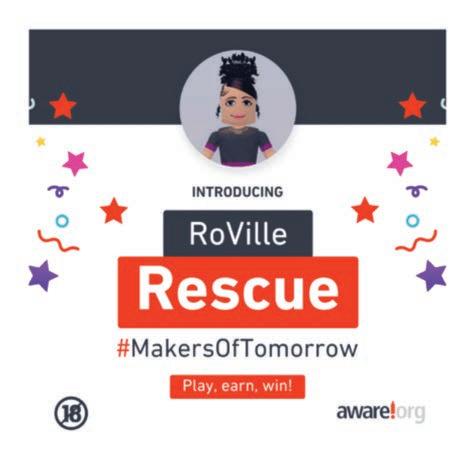
the opportunity to learn and grow during every step of their journey.
The experience aims to encourage the youth, gamers and other individuals to face up to and witness the results of these circumstances first-hand – but under the game’s safe boundaries.
Grab the youth gamers in your life and encourage them to join in the RoVille Rescue: The Lost Items challenge, save the day and build a brighter, sober future for all!
Every industry suffers its fair share of myths and waste management is no different. We need to separate the truth from the half-truths and nonsense that can hinder our progress towards a waste-free society, writes
MPENDULO GININDZA, president of
the Institute of Waste Management of Southern Africa
1. Waste management is only about garbage disposal
How to dispose of one’s garbage is just a small part of waste management, a complex discipline that reaches across industries and national borders. It embraces strategies for ethical, sustainable and responsible product development, manufacture, consumption and disposal, including the destruction, storage, recycling or reusability of waste.
2. Waste management is solely the government’s responsibility Waste management is the responsibility of everyone who generates waste, including households, retailers and, under recent legislation, product manufacturers. They are assisted by the waste managers who direct day-to-day operations in the waste industry.
3. The goal of waste management is to save the environment
While environmental preservation is a key goal of waste management, it equally bene ts society and the economy. This includes protecting the health of humans, animals and plant life by preventing them and their surroundings from becoming contaminated. Contamination can threaten food and water supplies and therefore has dire economic implications.
4. Landfills are the only solution
Until now, land lls have been a necessary evil, not a solution. Modern waste management comprises a range of alternative strategies that seek to reduce land lls and minimise our dependence on them.
5. Recycling is too expensive and inefficient
In some cases, maybe, but if this myth were really true, recycling companies would not survive long, let alone pro t as they do. Every year, recycling technologies become more advanced, cost-effective and ef cient, ensuring recycling remains a go-to waste management practice.
6. Everything must be recycled
Unfortunately, this myth is the result of retail marketing focusing only on recycling because the term is popular with consumers. In fact, not all waste is suitable for recycling and other methods exist to handle anything that is not. They include incineration, composting, waste-to-energy, reuse and others.
7. We need to maximise recycling rates
If only. However, achieving a maximum rate of recycling depends on many factors, such as recycling technologies, capabilities and throughput capacity as well as economic viability. Every solution has limits and, as mentioned, attention and resources must also be given to managing waste that cannot be recycled at all and for which better techniques exist.
8. Stricter regulation is the answer
Do more traf c cameras prevent people from speeding? Usually not. Regulation only sets the standard for compliance. It must be supported by education and public awareness programmes that teach people the bene ts of positive waste management behaviours. Training needs to start at home and in kindergarten and continue throughout high school, university and into employment.
9. Waste management is a secondary concern
You may be surprised that many of today’s global problems, especially the climate crisis, are directly or indirectly linked to poor waste management. It is actually a primary concern because it is deeply embedded in so many others.
10. Third world countries can’t afford waste management
The truth? We cannot afford not to embrace waste management because that will cost us dearly in the long run. In fact, we have the opportunity to lead the world by developing advanced waste management techniques that t the African context.
Modern waste management comprises a range of alternative strategies that seek to reduce landfills and minimise our dependence on them.
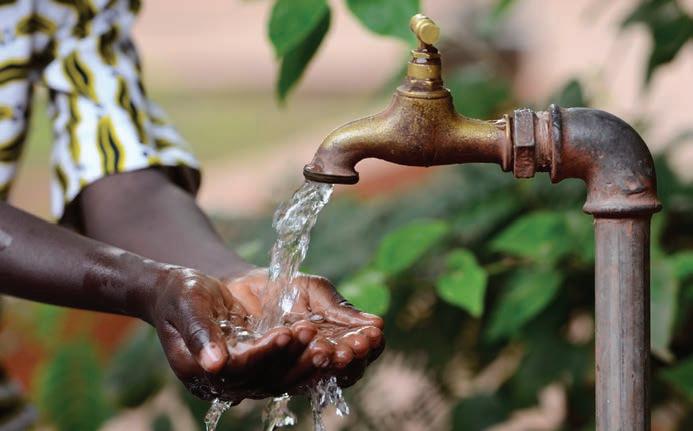
JONATHAN SCHRODER, technical director, SNOTHANDO SHEZI, associate technologist, and MOHAMED ABDELMEGEED, technical director, at AECOM, write that there’s great tension in the water industry between the economic sustainability of water supply and the social responsibility of providing water as a basic human need. In other words, to ensure equitable provision of water, the business of water needs to work
To make the business of water work for all stakeholders, from government (the water services provider) to the general public and business, the customer must be involved in the commercial and conservation aspects of water. In this article, we describe what can be done to help, but rst, we explore water equity and its challenges.
Water is a basic human need. Access to clean, safe water provides life and dignity and, in many parts of the world, is considered a human right. Globally, water equity remains a pressing concern, emphasising the importance of raising awareness.
World Water Day, celebrated each year on 22 March, is a prime example of a public education campaign to raise awareness about water equity issues and promote water conservation practices. It empowers communities to advocate for their rights to clean water but also, very importantly, encourages responsible water usage.
Disparities in access can exacerbate social inequalities and impact health, education and economic opportunities. Water equity is critical not only to address immediate water-related challenges, but also to foster inclusive and sustainable development that bene ts everyone, regardless of their socioeconomic status or geographic location.
Water is not only essential for survival but, in many cases, thriving. The need to purchase water at high prices or spend considerable time and effort collecting water from distant sources can strain household budgets and time, limiting opportunities for economic advancement. Women and children, who are often responsible for water collection in many communities, bear a disproportionate burden when water sources are scarce or distant.
This can hinder their safety, access to education and economic opportunities, perpetuating cycles of poverty and inequality.
There is an array of key challenges to achieving equitable access to clean water globally. It is estimated that only 2.5 per cent of the earth’s water can be considered fresh, of which only half can be sustainably sourced and treated using current technologies. Additional factors, such as climate change, population growth and ineffective water management, worsen this scarcity and impact communities downstream.
Unlike renewable energy, where sun or wind power can be accessed easily, as it is a free and unlimited resource for all, water is a scarce resource and often inaccessible. It is therefore imperative to note that although alternative water resources can be accessed by individuals, the primary responsibility for water supply lies with local, district and national government. Many regions lack adequate capital and infrastructure for water supply and sanitation systems. This makes it dif cult to ensure access to clean water for all, particularly in rural areas where there has been historic neglect or no commercial drivers to develop water supply.
The considerable distances between water sources and development zones pose signi cant challenges, as exempli ed by Windhoek in Namibia. This situation results in constraints on development due to the exorbitant expenses associated with connecting the water source to areas of demand. In addition, the spatial development of rural communities tends to be scattered, often located atop hills and plateaus. Consequently, the cost per capita for water distribution to a scattered population can be substantial.
Another concern arises from the tendency to develop water resources and supply infrastructure in areas with commercial advantages, potentially
Many regions lack adequate capital and infrastructure for water supply and sanitation systems. This makes it di cult to ensure access to clean water for all.
neglecting poorer communities due to the absence of such bene ts. This limitation is compounded by constraints on payment for water, further marginalising these communities.
While affordability poses a genuine challenge for marginalised communities; maintaining free services inde nitely is currently not sustainable. Success hinges on political and social determination to undertake necessary actions, even if they involve unpopularity or resistance. Practices such as service charges can be proportionally implemented to cover capital and operational expenses.
For example, a tariff structure for consumers can be adjusted to accommodate the incremental costs of new projects and distribute the nancial burden. Stepped tariffs also assist in reducing the costs associated with servicing basic human needs by increasing the charge per unit of water as usage increases.
Even in areas where water is available, ensuring its cleanliness and safety can be challenging. Pollution stemming from industrial, agricultural and urban sources can contaminate water sources, posing
health risks to those who consume it. Marginalised communities are disproportionally vulnerable due to their lack of access to proper service provision. As such, waterborne diseases and health issues, such as diarrhoeal diseases, cholera and other waterborne illnesses, are unfortunately common. They are also more likely to live in areas vulnerable to environmental degradation exacerbating water scarcity issues. Industries and development projects often affect these communities disproportionately, leading to land displacement, loss of traditional livelihoods and environmental injustices.
Effective governance and supportive policies are essential to address water access challenges. However, inadequate governance structures, weak regulatory frameworks and political instability can impede progress to ensure equitable access to clean water.
Governments and policymakers have a pivotal role in promoting water equity and have been involved through
Globally trusted infrastructure consulting firm AECOM has been involved with numerous projects within the African context to support clients and communities in solving water equity challenges. A public-sector company such as AECOM can play a pivotal role by providing specialised technical knowledge and consulting services tailored to specific needs, such as engineering solutions, project management and sustainable development strategies. It can offer financial guidance for infrastructure projects, research initiatives and community development programmes.
AECOM has assisted in several studies to help the Department of Water and Sanitation achieve long-term water security and short-term resource allocation to guide role players in co-operative governance. It encompasses strategies for
reconciliation, implementing interventions and delineating roles and responsibilities within the water sector to ensure long-term sustainable water supply for all users within a system or catchment area.
AECOM has also supported authorities with assessments of water resources to minimise less socioeconomically significant water uses, thereby ensuring the preservation of critical supply and meeting basic human needs during periods of scarcity (drought). It has also been involved in major bulk and rural water schemes, extending access to water to underserved communities, and assisted private mining and industrial clients in evaluating their water requirements and exploring innovative water conservation strategies and alternative water resources.
the development of various water and sanitation master plans, prioritisation of services delivery and funding development. The realities and challenges of water services in the current environment are signi cant and complex and require water users, bene ciaries, the private sector and government to come together to solve these challenges.
Governments can enact laws and regulations to ensure equitable access to clean and safe water for all citizens. This includes implementing policies to prevent water discrimination and address disparities in access to water resources. Policymakers can and have allocated funds to develop and maintain water infrastructure in underserved communities. It includes building and upgrading water treatment facilities, distribution networks and sanitation systems to improve access to water services. While the overall plans are commendable, future implementations need to be evaluated to ensure a thorough understanding of their long-term impacts and to guarantee sustainability, both environmentally and nancially. Financial sustainability may include conducting
The company’s cutting-edge work on wastewater reuse and mitigating the inherent health concerns, including dealing with contaminants of emerging concern, positions it to support private and public clients to investigate wastewater as a viable alternative water resource. Moreover, it can collaborate with governmental agencies, nonprofit organisations and local communities to develop and implement solutions to align with broader socioeconomic and environmental goals.
It can also engage in public-private partnerships to deliver essential services and infrastructure projects to foster economic growth and social progress. AECOM can advocate for water conservation in the spaces it occupies by sharing realities and helping educate families, friends and communities about the challenges and dispelling misconceptions.
• Educate yourself: start learning about water equity issues, including disparities in access to clean water and sanitation facilities around the world.
• Spread awareness: use your platforms, whether it be social media, community groups or the workplace, to raise awareness about water equity issues and the importance of addressing them.
• Support organisations: donate, volunteer or participate in advocacy campaigns.
• Engage in dialogue: start conversations with friends, family, colleagues and policymakers about water equity to increase awareness and foster support for change.
• Practise water conservation: reduce your water consumption and contribute to efforts to ensure equitable access to water resources for all.
• Advocate for policies: advocate at local, national and international levels for policies to promote equitable access to clean water and sanitation services.
• Hold decision-makers accountable: hold governments, corporations and other stakeholders accountable for their actions and policies related to water equity – this is essential to drive change.
• Participate in community initiatives: get involved in community-based initiatives, such as clean water projects or advocacy groups, to make a direct impact and create positive change at the grassroots level.
a transparent evaluation of existing and proposed schemes, considering capital and operational expenditures and scrutinising the sources and rationale behind funding allocations and revenue streams.
Cross-subsidising will always be with us, but willingness and ability to pay assessments in new developments are critical to increasing the probability of success of a scheme operating sustainably. Educating the community is key for them to understand that access to water goes much further than just opening a tap. Contributing to this service and using it conservatively is key to ensuring this service is available for future generations.
It is incumbent upon governments to not just set forth, execute and oversee measures for water access and quality, but also to uphold accountability. The absence of a clear vision and accountability can undermine even the most well-conceived plans. Identifying and prioritising tasks, including foundational work that might not garner immediate recognition or popularity, is essential to realise this objective.
It is worth considering integrating water awareness into the education curriculum, especially given the projected water scarcity in the future. Policymakers can collaborate with stakeholders, including community organisations, nongovernmental organisations and international agencies, to develop comprehensive strategies to address water equity challenges. By leveraging expertise and resources from diverse sectors, governments can implement more effective and sustainable solutions.
Human nature is such that we quickly forget about the last ood that destroyed infrastructure or the last drought that caused us to queue at a truck for water. Continual education regarding water scarcity is therefore critical to ensure a culture of conservation is developed to avoid the vacillation between excessive water use during wet periods, which results in crises during dry periods.
Technology can contribute to water equity in the form of implementing advanced water management systems with sensors and internet of things devices to enhance ef ciency in water distribution, minimise leaks and ensure equitable access to water resources across communities. Utilising
More about water equity READ NOW READ NOW

World Water Day info

satellite imagery and remote-sensing technologies allows for accurate monitoring of water sources, identifying areas with water issues (for example, contamination) promptly. This data can inform targeted interventions to improve water access in underserved regions.
Developing and deploying innovative technologies can help purify contaminated water sources, making them safe for human consumption. These solutions are particularly crucial in regions facing water quality challenges. Leveraging digital platforms and mobile applications can empower communities to participate in water management decisions, voice their concerns and access information about water availability and quality. This promotes transparency and inclusivity in water governance.
Investing in research and development creates cost-effective technologies to ensure water equity initiatives remain nancially accessible to all communities, including those with limited resources. Educational purposes such as online courses and interactive tools can enhance awareness about water conservation practices and promote behavioural changes that contribute to equitable water usage.
MUHAMMAD ALI, managing director of World Wide Industrial & Systems Engineers and ISO specialist, believes there is a simple solution when it comes to municipal procurement and supply chains: automation
Adopting proven internationally recognised standards – from quality management to health and safety – gives municipal of cials options to prevent failing audits, poor governance or corrupt procurement.
It is a sad reality that many South African municipalities are in disarray. Of the country’s 257 local and district administrative areas, 66 are considered dysfunctional. That means more than a quarter of all municipalities are in turmoil.
A Department of Cooperative Governance and Traditional Affairs report presented to parliament towards the end of last year also revealed that only 11.67 per cent of municipalities are deemed “stable”.
While Deputy President Paul Mashatile attributes the situation to poor governance, weak institutional capacity, woeful capacity and political instability, corruption also plays a major role.
The Hawks told parliament last year that more than 120 corruption cases were being investigated across all municipalities. At the same brie ng in June, SIU chief national investigations of cer Leonard Lekgetho said R1.7-billion related to local government corruption was under civil litigation. Given the huge amounts of money changing hands illegally, tackling corruption may seem insurmountable.
By working within the Public Finances Management Act and international standards agreed to by the International Organisation for Standardisation (ISO), municipalities can create robust criteria selection, and the automated system can identify the best possible supplier.
System logs must be protected to ensure there is no foul play. Another advantage is that organisations awarded tenders will be appointed faster. At the same time, machine learning can also identify poor-performing vendors who do not conform to standards in executing their duties.
One of the big changes needed is for top city managers to be held more accountable for what happens in municipalities. They need to sign letters of appointment that clearly de ne the consequences of failing audits with reoccurring ndings and how this impacts their leadership role and the municipality’s reputation.
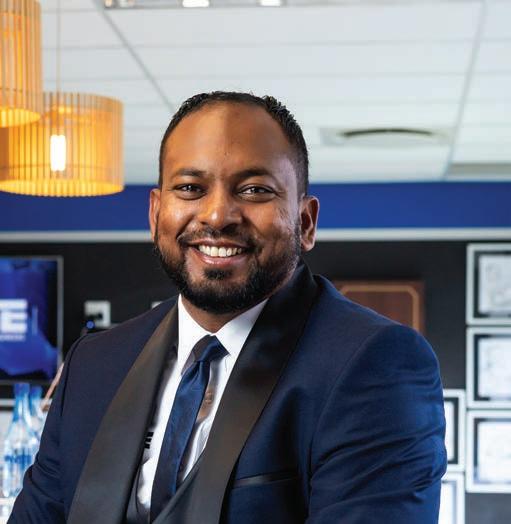

in place, the employees must understand what is expected of them and who to hold responsible.
The time has come for the public sector to embrace the ISO standards that have proved so successful in assisting private sector companies. ISO standards promote effective understanding, training and on-the-job implementation. This way, a municipality can see value, understand consequences and ultimately feel satis ed with its performance.
Insecure employees do not trust the process. That is where we ultimately fail, as no decisions are made. In South Africa, we are overgoverned because of insecurities in our processes. But trust, automation and internal quality checks improve these processes.
The systems to ensure the health and wellbeing of the public should also be standardised. If there is a fatality, the Occupational Health and Safety Act can hold the highest person in the organisation responsible. Once processes, policies and procedures are
Municipal of cials can measure the success of implementing internationally recognised standards in numerous ways. These include risk reduction, improvements in audit ndings and governance and constructive feedback from the public on improvements made in streamlining processes and nding effective solutions.
Nations such as Singapore have adopted ISO standards at the municipal level to great effect. It has bene tted from standards such as ISO 18091, the rst ISO standard directed at the public sector, which gives guidelines for implementing ISO 9001 for quality management systems. This includes a diagnostic methodology for local authorities to measure the scope and evolution of their processes and services.
The problem in South Africa is that very few understand the importance of using a risk register to optimise processes. This needs to change.
ISO standards promote e ective understanding, training and on-the-job implementation.
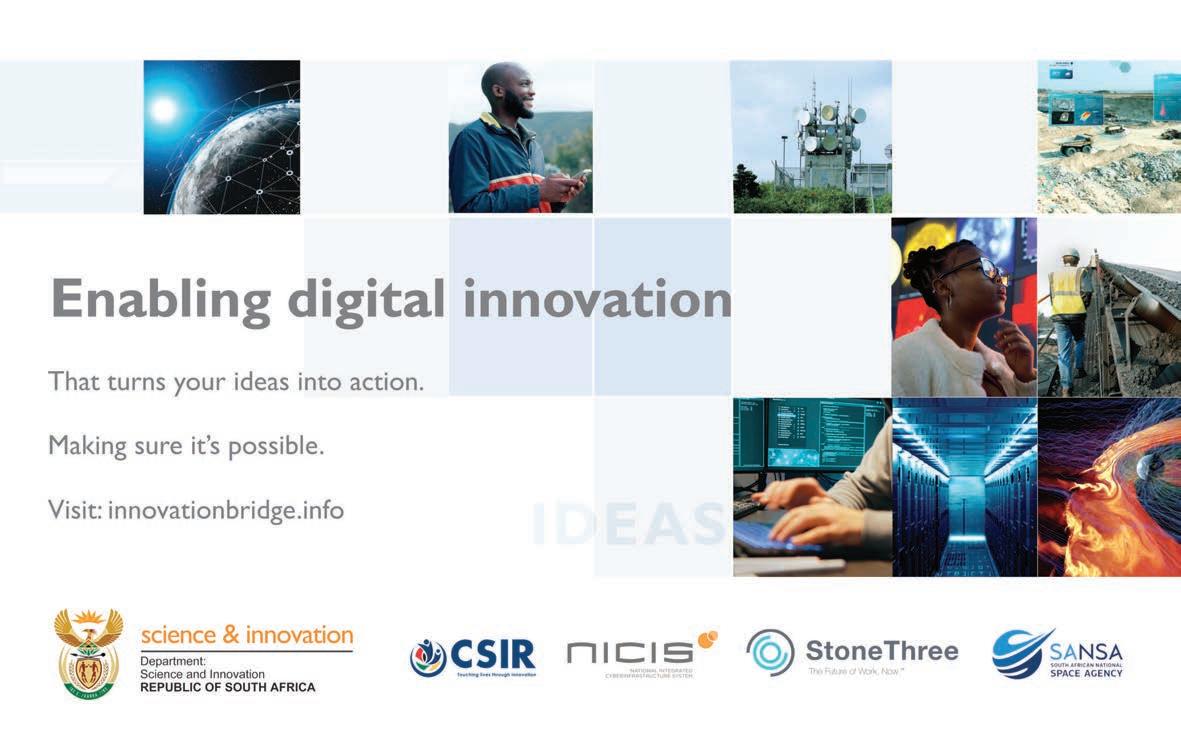
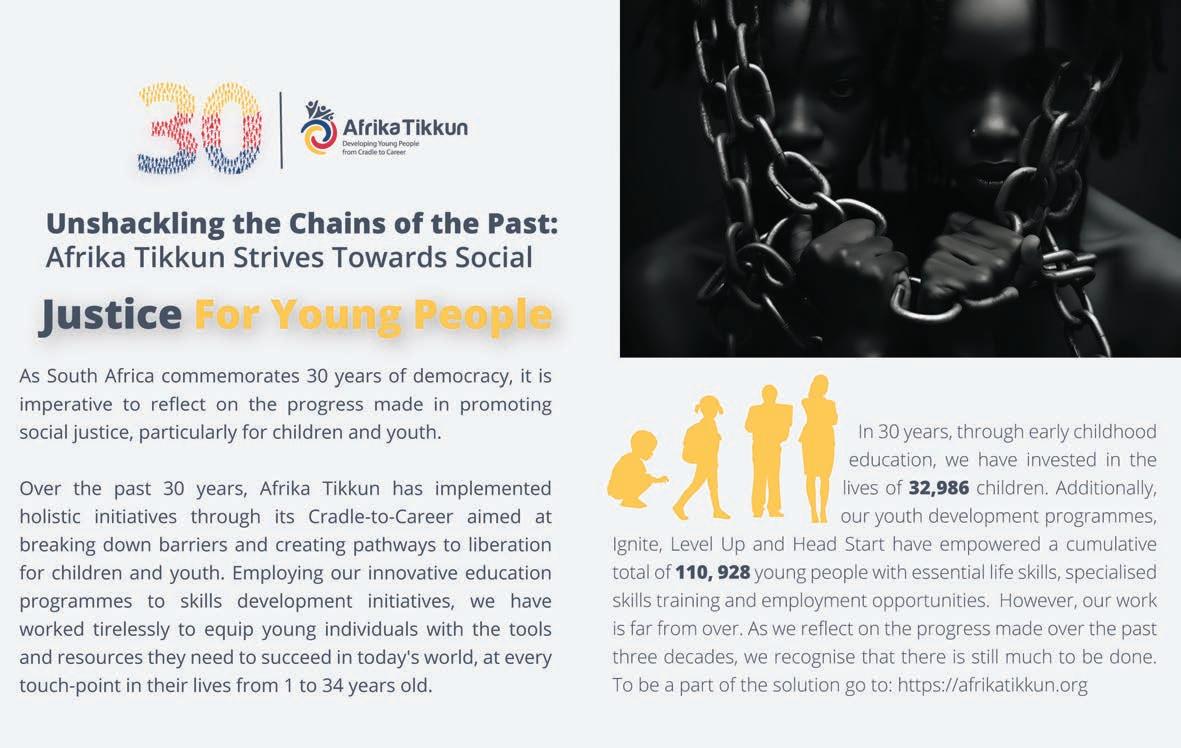
mission to ensure it is eradicated for good.
By MATTHEW HIRSCH

Andrew Pollock is on a mission to reduce waste and get rid of plastic. “I have two children and if I look at what my generation has done to the planet, I have to do something to try to x it,” Pollock says.
The core of the problem, in Pollock’s view, is the single-use plastic bag.
“Without a doubt, it has caused massive pollution and damage. There is evidence of nanoplastic in every sphere of life, including the human body.”
Pollock says his drive to do something started when walking with his wife on a mountain near their home. They came across discarded dog poo in a plastic bag from a popular supermarket chain.
“We love Cape Town, it is a very special place, and we especially like Constantia, which is partly rural, green, calm and quiet. My wife and I looked at this
situation, and I said we cannot accept this disregard for our planet any longer.”
“I wanted to nd a dog poo bag maker that could also make a compostable shopping bag. It led me to a company in Italy. After several visits to Italy, we secured the exclusive distribution rights for the raw material,” he informs.
Pollock’s composting business operates from an of ce on his property. His wife runs their guest house, which he says, they try to make as ef cient as possible from a waste point of view.
“The waste journey has to change. Dry waste is largely catered for in the sense that if you separate all your plastic and glass, it’s got a destination and is recycled. However, the wet waste generated in a home such as ours is huge. We would have two huge bags full of kitchen waste.”
“Business today has to be circular to be sustainable. This business of taking fossil fuels out of the earth is no good.” – Andrew Pollock
Andrew Pollock’s composting business is involved in several projects.
The agriclip. “We developed an agriclip, used by the viticulture industry, from plant-based material.
“Agriclips are traditionally made from plastic and can cause damage to the environment when they erode,” says Pollock.
Composable golf tee. “We are about to test a compostable golf tee. A plastic golf tee can shatter when struck by a golf club. I don’t think this new tee is going to shatter; I think it’s going to have longevity. It’s important to change. It will be more expensive, but it will signal that you’re a concerned citizen of the planet,” Pollock explains.
Pollock adds that during summer when people consume plenty of fruit, they need to know that fruit peels and pips can go into a compostable bag, which can then go to a composting facility. “We’re trying to show that everyone can be part of the solution; it can be done. It is happening in other parts of the world, especially Europe, and Italy is setting a wonderful example for us to follow; they do it super ef ciently.”
This waste journey is often referred to as the circular economy. Guidelines from the Department of Environment, Forestry and Fisheries read: “Consideration of the South African waste economy shows that the potential contribution to gross domestic product (GDP) is signi cant if the materials currently being lost to land ll, can be recovered and bene ciated.”
Several of the circular economy initiatives discussed in the guideline are
geared towards employment creation, new business development and socioeconomic upliftment. There are also environmental bene ts associated with circular systems: a waste-free environment, resource conservation, pollution prevention and greenhouse gas (GHG) emission reduction.
Pollock says 20 years ago, we had what was called a linear economy. “Plastic was taken home, thrown away and then taken to land ll. What is happening today is that instead of using plastic you use a compostable alternative that can go back into the soil again.
“Now”, he says: “The whole journey is completely circular. Business today has to be circular to be sustainable. This business of taking fossil fuels out of the earth is no good. We’ve got a completely polluted environment. If we had known that and stopped to think beforehand, we might have made better decisions.”
This is what motivates Pollock and other Constantia residents. “Our goal is to keep it as close to what it was when we got here. We don’t destroy the nature
and fabric that makes up Constantia. I bet there are many other Constantias across the country that could do what we are doing. We are a preservation committee.
“My target is to get Constantia residents to agree to having zero kitchen and garden waste to land ll by December this year.”
Behavioural changes are essential in the ght against poor waste management. Education around these issues often enters the home through children. “School education is very important. Once you teach the child, the child becomes the teacher and teaches the parents. School programmes are vital. Show them how the compost is made and what it produces. Our market on a Saturday morning is the most wonderful and vibrant thing you’ve seen. Children come and ask questions,” says Pollock.
Ward councillor for the area, Emile Langenhoven, says he supports any kind of waste redirection. “I’m very supportive of the concept of compostable and wet
“If you start recycling and composting programmes in schools, it will have a knock-on e ect in the household.” – Emile Langehoven
Did you know that Milan collects the most biowaste per capita in all of Europe with over 110kg per inhabitant – equal to six times the EU average? This equates to a saving in CO2 emissions of over 9 000 tonnes per year.
From 1 January 2022, separate collection of food waste became mandatory in all Italian municipalities. This happened two years ahead of the deadline set by the European Union.
The regulation requires Italian municipalities to set up a separate collection service for food waste, using EN 13432-certified biodegradable and compostable packaging.
From that date, separate collection of food waste became mandatory in all Italian municipalities: organic waste was collected separately from other types of waste. EN 13432-certified biodegradable and compostable packaging was also collected together with food waste to be transformed into compost: in particular bioplastic carrier bags, but also fruit and vegetable packaging, plates, glasses and disposable tableware made of
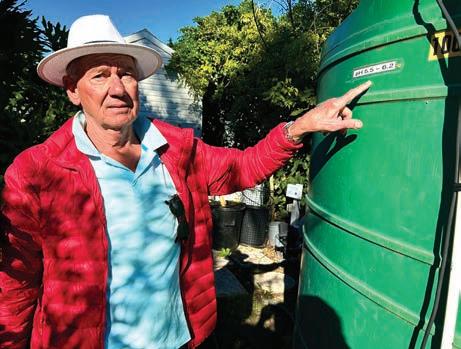
waste held and treated within an area, especially in Constantia – a semi-rural area that can actually use the products generated from it.”
He agrees with Pollock that school programmes on composting and recycling are important. “If you start recycling and composting programmes in schools, it will have a knock-on effect in the household. If the kids are involved, it becomes a family exercise – that makes it more rewarding. I wish all schools would implement this.”
compostable material. This is required by Article 182-ter of Legislative Decree 152/2006, which incorporates into Italian law European Directive 2018/851 on waste.
The standard on the collection of organic waste and biodegradable and compostable plastic, introduced by the European directive and implemented early in Italy, is important because
• it makes a further contribution to achieving the overall target for separate collection, which should be at least 65 per cent of municipal waste; and
• it helps reach the target for recycling of biodegradable and compostable plastic of at least 50 per cent by 31 December 2025.
In addition, the positive environmental contribution of increased compost production through increased collection of food waste should not be underestimated. Italy sits towards the top of the European league table with capacity to compost over seven million tonnes, second only to Germany.
Source: biorepack.org
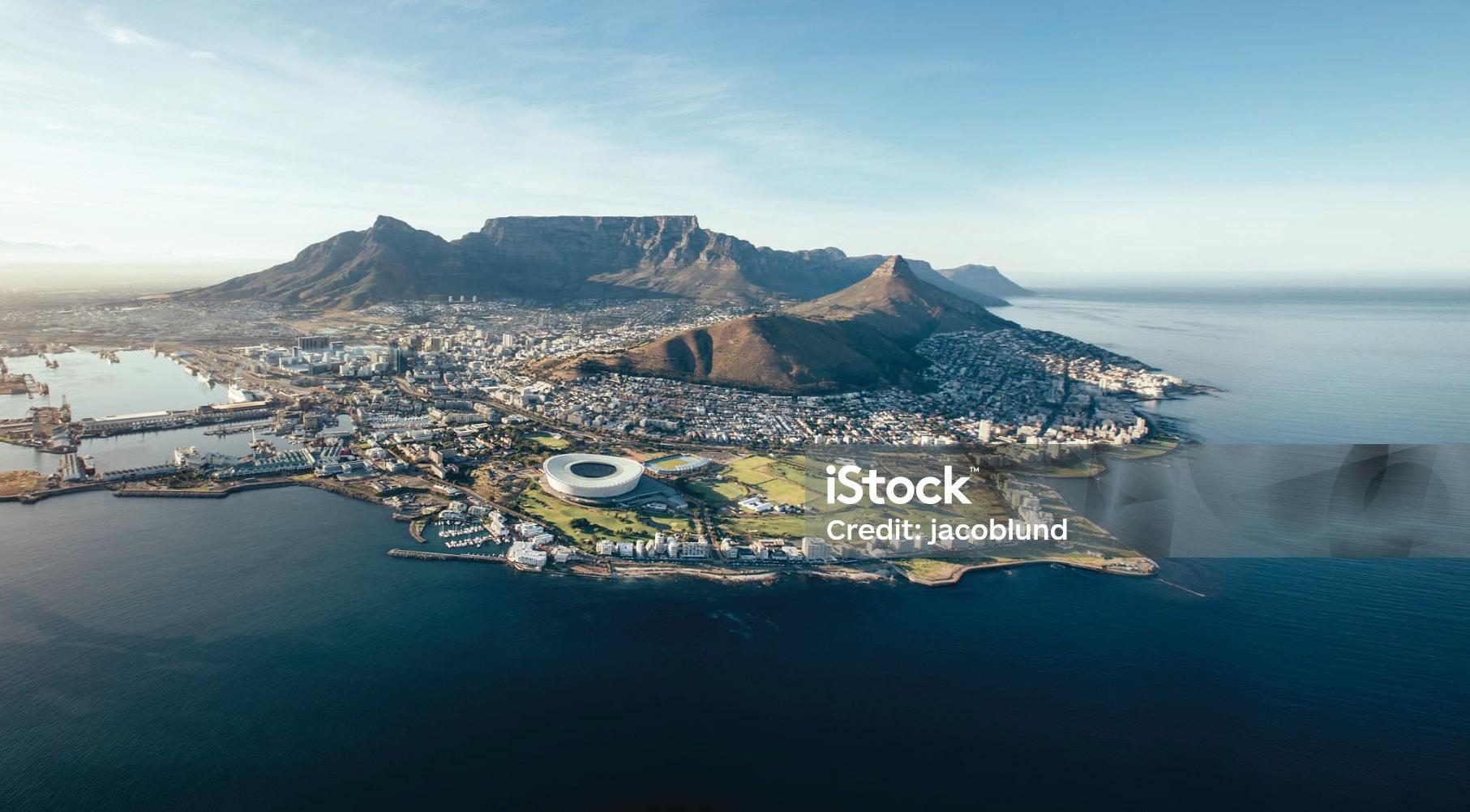
Service delivery projects in the Western Cape, Gauteng, Limpopo and Tshwane.
Earlier in May, a landmark report by the Development Action Group (DAG) with the Human Sciences Research Council (HSRC) and the National Association of Social Housing Organisations (NASHO), titled, “Releasing Municipal Land for Affordable Housing – Documenting the Experiences of Cape Town, eThekwini, Johannesburg and Tshwane”, was released.
The report unpacks the intricacies of releasing well-located public land for affordable housing by drawing on the experiences of Cape Town, eThekwini, Johannesburg and Tshwane metropolitan municipalities. Through case studies and key findings, the research demystifies the complex legal and technical procedures involved in the disposal of municipal land. It also identifies ways of strengthening the system to ensure successful outcomes.
The report focuses on land. “We wanted to understand how municipalities were using their surplus land to drive investment in social housing and redress apartheid spatial planning, particularly within neighbourhoods that are out of reach for low-income and working-class families,” explains Helen Rourke, programme director at DAG.
The report shows that each city has unique circumstances and experiences, yet there are also important similarities in the procedures being followed and the challenges faced. The report provides crucial insights into ways of streamlining land release to improve viability and expedite affordable housing delivery.
Professor Ivan Turok from the HSRC and the University of the Free State highlighted the need for innovation in community participation. Investing in constructive engagement will improve transparency and promote understanding. Given the material and symbolic value of land, engaging the local community is vital to respond to people’s needs and fears, to benefit from their knowledge, and to obtain their consent to avoid court disputes, delays and even physical disruption.
The four major metros are making progress in refining their land release procedures and building a pipeline after much trial and error. Participants at the launch appreciated the opportunity to learn from each other and to share their experiences with people from other spheres of government in the hope that releasing public land for social and affordable housing can be scaled up to bring about more just and inclusive cities.


The Johannesburg Development Agency proudly marked its 23rd anniversary as the infrastructure arm of the City of Johannesburg on 1 April 2024. Since its establishment in 2001, the JDA has been at the forefront of shaping the urban landscape and driving socioeconomic growth through strategic development projects
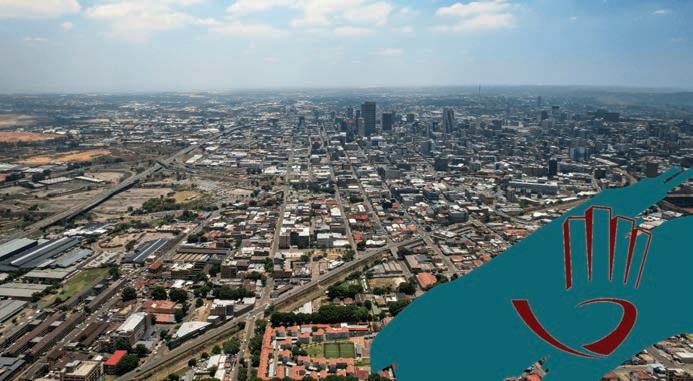
The Johannesburg Development Agency (JDA) plays a role in the implementation of the Growth and Development Strategy of the city that responds to the Joburg 2040 ideals of resilience, liveability and sustainability.
Over the past year, the JDA has achieved signi cant milestones, underscoring its commitment to enhancing the quality of life for residents and fostering inclusive growth. Here are some highlights from the JDA’s 22nd year of operations:
REA VAYA BRT ALEXANDRA BUS DEPOT ACCESS ROAD COMPLETED
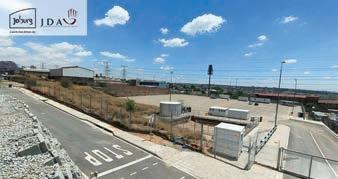
The Rea Vaya BRT Alexandra Bus Depot Access Road, located in Alexandra, Johannesburg reached practical completion. This vital infrastructure will facilitate Phase 1C operations, linking Sandton to Alexandra and Parktown to Alexandra, enhancing connectivity and accessibility for commuters.
In Soweto, the swimming pool at the Jabulani Safe-Hub was completed and is ready to usher in a new era of aquatic excellence. The highly anticipated Olympic-size community swimming pool will form part of the Jabulani SAFA Safe-Hub and stands as a testament to the city’s commitment and vision to provide world-class recreational facilities for its residents.

Construction has begun on the transformative Klipfontein Wellness Centre in Midrand, designed to combat drug and alcohol abuse. This state-of-the-art facility will include a 2 175m2 clinic and a 2 247m2 social development drug treatment centre. This cutting-edge facility underscores the JDA’s dedication to addressing pressing social challenges and promoting holistic wellbeing.
In a bold step towards addressing homelessness, the JDA has commenced construction of a 200-bed displaced persons shelter in Devland. This crucial initiative will provide temporary accommodation and support to vulnerable individuals within Region G, embodying the JDA’s commitment to social inclusion and support.
“As we celebrate 23 years of impactful development, the JDA reaf rms its dedication to delivering these infrastructure projects through fostering resilience and creating a vibrant, inclusive Johannesburg for all,” Themba Mathibe, the JDA acting CEO, says.
“There is a plan to improve our service delivery model and deliver quality infrastructure projects drawing on our 23 years of experience in project delivery. We extend our gratitude to our partners, stakeholders and the residents of Johannesburg for their unwavering support as we continue to shape the future of our city,” he concludes.
Over the past year, the JDA has achieved significant milestones, underscoring its commitment to enhancing the quality of life for residents and fostering inclusive growth.
A public toilet project in Cape Town – aimed at increasing the amount of clean, safe and accessible public ablution facilities available to people who visit, work, do business or live in the CBD – has proved a huge success with hundreds of thousands of people using them since their inception

Since the project’s launch in 2022, nearly 300 000 people have used the spotless toilets, situated at ve key, highly pedestrianised inner-city locations, which have provided welcome relief for the thousands of visitors to the CBD over the festive season.
Launched in May 2022, the project is a joint venture between the Cape Town Central City Improvement District (CCID), the City of Cape Town, which came on board in 2023, and nongovernmental organisation (NGO), Khulisa Social Solutions.
City of Cape Town councillor for Ward 115 Ian McMahon hailed the pilot as “an amazing success”, evident in the “sheer number of people using the ablutions”.
CCID CEO Tasso Evangelinos says the lack of suf cient public toilets in town prompted the CCID to launch the project.

“There is a scarcity of public ablution facilities in the CBD, and the long-standing ones are only open during normal working hours. We wanted to address this shortage, but also provide clean, safe facilities that are open during the day and also at night,” he says.
Evangelinos says from mid-May 2022 to 31 January 2024, 297 063 people used the serviced toilets. “It’s clear from these gures that the convenient and clean facilities have been very well received and appreciated by all members of our CBD community.”
At present, there are 14 toilets, 8 of which are mobile units, located in pairs on the corner of Adderley and Darling Streets, and Longmarket Street, Upper Long Street and Barrack Street. The remaining six toilets are situated at the public ablution facility on Greenmarket Square.
“It’s clear from these figures that the convenient and clean facilities have been very well received and appreciated by all members of our CBD community.” – Tasso Evangelinos
Evangelinos says for the project to continue in its present form and remain sustainable, sponsorship is urgently needed. “We are very grateful to the City of Cape Town for collaborating with us and enabling us to increase the number of toilets from four to fourteen, but we need corporate or business sponsorship for it to be sustainable in the long term.
“Clearly, there is a huge need for facilities of this kind in a busy central business district with a vibrant daytime and nighttime economy and which experienced a huge surge in visitor numbers during the holiday period. We are therefore looking for partners so we can continue to provide this invaluable service to all our stakeholders.“
McMahon says the statistics of people using the facilities are “crucial figures” in the future determination of the ablution facilities and the discussion around times of opening and operations going forward.
Says Laitinen: “Supporting projects that secure jobs instead of relying on a welfare approach that keeps people in a state of dependency is an effective way to address complex social issues such as homelessness. These toilets have proven to be a hand-up, not a hand-out.”
Kally Benito, manager of the CCID’s urban management department, says an important aspect of the project is the job creation for at least 19 people who manage the toilets.
“As the toilets need to be cleaned and sanitised after every use, we have collaborated with our partner NGO, Khulisa Social Solutions, which, via its Streetscapes work-based rehabilitation programme, provides trained workers who earn a stipend to clean and sanitise the units.”
She says safety is also paramount, with CCID Safety & Security public safety
of cers on patrol near the units and on standby to offer assistance.
Benito says the facilities also provide digni ed ablution options in town for the homeless population, who do not have easy access to toilets or restrooms inside restaurants or eateries. “While the majority of users are people who visit or work in the CBD, of the 297 063 recorded users, 79 076 were homeless individuals.”
According to Jesse Laitinen, Khulisa Social Solutions strategic partnerships manager, the project’s job opportunities have provided the participants with a sense of purpose and structure.
“The work offers a daily routine and a reason to wake up in the morning. This
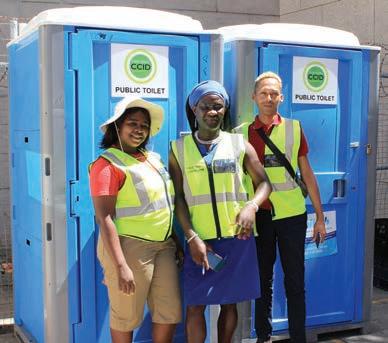
can be crucial in breaking cycles of instability and addiction that often accompany long-term homelessness.”
“An important aspect of the project is the job creation for at least 19 people who manage the toilets.” – Kally Benito
The municipality is in the top five of the latest Governance Performance Index report for 2024
Overberg District Municipality has been ranked fourth in the C1 Non-Water Services Authority District Municipal Rank by the research and advocacy nonprofit organisation, Good Governance Africa (GGA), in the latest Governance Performance Index (GPI) report of 2024.
There is a rank of 8 metropolitan municipalities, 44 district municipalities and 205 local municipalities. The GGA evaluated all municipalities according to four categories:
• administration and governance;
• leadership and management;
• planning, monitoring and evaluation; and
• service delivery.
The top four district municipalities in this category are from the Western Cape.
RANKING OF LOCAL MUNICIPALITIES IN THE OVERBERG REGION
Overstrand Municipality
In the category B2 Large Towns: ranked 3rd
Western Cape: 5th National: 5th
Cape Agulhas Municipality
In the category B3 Small Towns: ranked 5th
Western Cape: 10th National: 11th
Theewaterskloof Municipality
In the category B3 Small Towns: ranked 6th
Western Cape: 12th National: 14th
Swellendam Municipality
In the category B3 Small Towns: ranked 8th
Western Cape: 14th National: 18th
She says the project has not only increased the workers’ sense of self-worth and pride, but also helped them regain con dence in their abilities and their place within society – as well as pay rent – thereby contributing to long-term stability.
Benito says 10 of the 14 toilets are open 7 days a week from 7am to 11pm, which is a big plus. “The units at Adderley and Darling Streets, Longmarket Street and on Greenmarket Square are all open Monday to Sunday 7am–11pm,” she says.
The units in Barrack Street are open from Monday to Friday, 7am to 5pm and the Upper Long Street units, which serve the nighttime economy and cater for late-night revellers, are open from Tuesday to Saturday, 4pm–5am.


The Governance Performance Index –South Africa 2024

TLOU SEBOLA, Petco regional recycling manager for collections and training projects, shares that Tshwane’s separation-at-source recycling project anticipates the habit of separating recyclables will extend beyond its premises and be embraced in homes and workplaces as well

Aremarkable separation-at-source recycling pilot project in the City of Tshwane is reaping rewards. It is enticing the public to recycle, extracting quality recyclables right where they are disposed of and diverting them from land lls. This successful initiative is proof that public-private partnerships can create economic opportunities for service providers in the collection and recycling value chain.
Since February this year, visitors to Tshwane’s popular public Fountains Valley Resort have been greeted by 12 large colour-coded and labelled recycling bins – part of the city’s rst separation-at-source (S@S) recycling campaign in a public space.
Resort visitors simply drop their empty aluminium cans, plastic, paper and glass packaging waste from the food and beverages they consume into the appropriate recycling bins.
A collaboration between the City of Tshwane and Petco – South Africa’s longest-standing producer responsibility organisation (PRO) – the S@S campaign is already a success, according to of cials, and plans are now afoot to extend it to the city’s many other resorts and public areas. The primary objective of this initiative is to instigate a shift in human behaviour. We anticipate that the habit of separating recyclables, cultivated at the resort, will extend beyond its premises and be embraced in homes and workplaces as well.
Prior to the project, waste pickers had to sort through general waste in search of valuable recyclable packaging, which at that stage was contaminated by food waste.
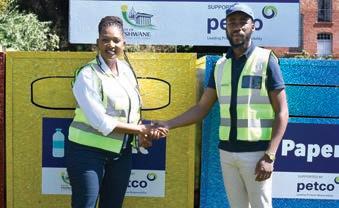
A collaboration between the City of Tshwane, represented by councillor Ziyanda Zwane (right), and Petco, a producer responsibility organisation, represented by Tlou
has rolled out a first-of-its-kind separation-atsource project in the city.
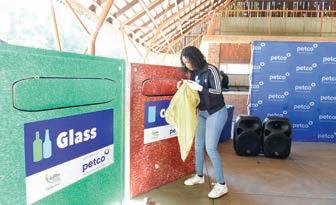
separation-at-source
Not only are the S@S bins encouraging resort visitors to recycle; they are also achieving other crucial goals. These include diverting recyclable waste from the city’s land lls and improving the quality of the recyclable materials that are separated since they don’t get contaminated by the nonrecyclable, mostly organic, residual waste.
Sorting the recyclable materials helps waste pickers, who receive better payment for collecting cleaner materials, separated according to type, that they sell to buy-back centres, which then on-sell them to recyclers.
Petco has also been holding education and training workshops with the Fountains Valley Resort staff, to ensure the S@S project – one of a number that Petco is rolling out with its partners nationwide – is well managed.
At the launch of the project in mid-April, councillor Ziyanda Zwane said that, like much of South Africa, the City of Tshwane was running out of land ll space at its four main land ll sites. “It is of crucial importance that we separate our waste so we enhance our recycling efforts,” said Zwane. “We are looking forward to rolling this out to every corner of the city to ensure we minimise the waste going to our land lls.”
According to parks of cials at the launch event, much of the waste generated at the city’s resorts was recyclable. Of cials said the initiative would make it easier for waste pickers. They added that prior to the project, waste pickers had to sort through general waste in search of valuable recyclable packaging, which at that stage was contaminated by food waste.
Broadening the project to other resorts would enable the city to enlist the help of co-operatives that had experience and passion for collection and recycling, of cials said.
The 12 large recycling bins dotted around the Fountains Valley Resort were made
from materials many would consider waste. The bins were primarily made from polyaluminium – a mixture of plastic and aluminium pellets – extracted from recycled liquid board cartons used to package fruit juice, milk and custard.
The manufacture of the 12 bins “utilised 2.5 tonnes of polyaluminium and polyethylene lm”, said Maggie Infante, CEO of In nite Industries, which manufactured the bins. “This translates to 750 000 one-litre cartons diverted from land ll.”
These cartons are one of the waste streams for which Petco administers an extended producer responsibility (EPR) scheme. Making new products from recycled materials – such as S@S bins –stimulates demand for the collection of cartons within the value chain.
The executive mayor of Tshwane, CILLIERS BRINK, shares the city’s recent housing win
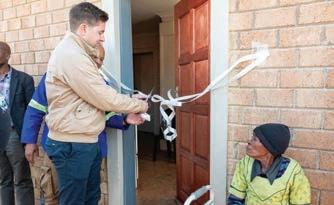
Towards the end of May this year, I joined the member of the mayoral committee for human settlements, Ofentse Madzebatela, to officially launch the Mayoral Houses Project in Atteridgeville Ext 19. In 2017, the then-mayoral committee under the leadership of former executive mayor Solly Msimanga made the admirable decision to sell the mayoral
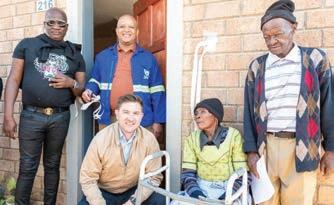
residential mansion in Muckleneuk for R5.1-million and invest the proceeds to build 40 low-cost houses for previously disadvantaged and special needs beneficiaries in Atteridgeville.
While there have been delays, such as poor performance by contractors and early occupation by beneficiaries to prevent illegal invasion, this project is still a success. We have been able to provide housing and access to services to vulnerable groups in our society. Through this project, we deliberately identified
We have been able to provide housing and access to services to vulnerable groups in our society.
Petco CEO Cheri Scholtz said waste management was a huge challenge for most South African towns and cities, but that good waste management offered many long-term socioeconomic bene ts, including a cleaner environment, healthier communities and an increase in tourism.
“There are many pressing demands on municipal funding. Public-private partnership is one way to move forward, and it is our collective responsibility to help nd solutions,” said Scholtz, adding that there was no one-size- ts-all solution.
“It’s a complex landscape, but we have to divert valuable materials that have recyclable potential away from land lls. Together, we can make the necessary system changes. It won’t be instant, but it is urgent.”
beneficiaries who are elderly and people with disabilities.
I believe this project is true value for money with the city getting rid of a nonpriority asset to support and empower our residents with 40 low-cost houses. The beneficiaries now have a home and their dignity restored.
There are still many challenges in Atteridgeville Ext 19, including more effective waste removal services, stormwater drainage systems and better roads. These issues will be addressed over time, but for now, we have delivered on our promise to provide housing to identified beneficiaries.
The area has about 219 stands and the city is working with the provincial government to provide more housing opportunities to deserving beneficiaries.
I want to thank Ofentse Madzebatela and his team for their work in helping the city deliver decent housing opportunities to our residents.
Recently, the city launched the Townlands Social Housing Project, offering quality housing units close to the inner city, workplaces, schools and businesses.
Infrastructure is vital for local government development and growth. One of the areas Limpopo has been focusing on in the past few years is the refurbishment of its key roads, writes MATTHEW HIRSCH

Sekhukhune District Municipality (SDM) executive mayor Minah Bahula emphasised this point in an annual performance meeting in Polokwane last year. The recent 2022 Census said Limpopo’s population now stands at 6.6 million residents, making it the fth most populated province. This makes investment in infrastructure even more crucial.
One of the biggest recent projects in the province, according to Bahula, was the rehabilitation of the crucial R37 road. The section of the road stretched for 25km between Burgersfort and Polokwene. There has also been rehabilitation of the road linking Kgobokoane and Marble Hall.
“Beyond the tangible improvements in infrastructure, these initiatives have far-reaching implications for the socioeconomic fabric of Sekhukhune District. By investing in infrastructure, the region is investing in its people, empowering communities and fostering a conducive environment for growth and progress. The ripple effects of these developments extend beyond the mere physical realm, permeating into various aspects of life, from education and healthcare to entrepreneurship and innovation,” she said.
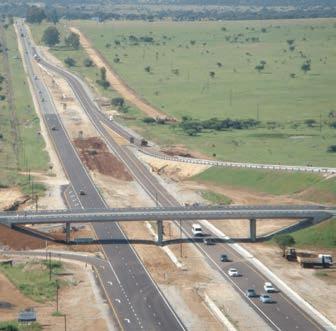
Limpopo premier Chupu Stanley Mathabatha echoed these sentiments during his State of the Province speech in February, noting that Limpopo’s population had changed signi cantly in the last few years.
“We embarked on a journey in 2019 with a clear vision of delivering socioeconomic infrastructure to serve as the backbone for service provision across our province. I am thrilled to report that we have successfully delivered 50 socioeconomic infrastructure projects, showing our dedication to the people of Limpopo.
“Many of us, seated here today, are bene ciaries of the expansion of our road infrastructure network by over 6 000 tarred kilometres since 1994,” he told local of cials.
“We have allocated resources for road maintenance and rehabilitation. This will improve the overall quality of our infrastructure and contribute to the longevity of our road network. And, we have also given over the maintenance of 19 roads to the South African National Roads Agency Limited to leverage on its capacity.”
“By investing in infrastructure, the region is investing in its people, empowering communities and fostering a conducive environment for growth and progress.” – Minah Bahula
According to a recent report by the Development Bank of Southern Africa, good roads are vital to the local economy. It reads: “Road infrastructure plays a critical role in South Africa’s economy. It makes it possible to transport goods and services, but it also enables movement for people, enhancing productivity within the economy. People can seek employment without the obstacle of poor road infrastructure, a major problem in rural areas. Road infrastructure will aid in connecting the rural population to the economic mainstream.”
The report cites agriculture as an industry that would bene t the most from a good road network. “This will help the agriculture industry trade more ef ciently, help create more jobs and improve people’s living conditions in South Africa,” the report reads.
The report states that road quality also plays an important role in the community.
“It helps keep people connected to metropolitans, making it easier for people to commute to different areas. Road infrastructure is an effective way to improve road safety. It helps people by increasing access to jobs, schools, stores and other recreational activities that improve quality of life.”
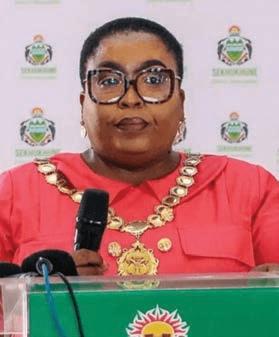
SALGA president Bheki Sto le said local government played a crucial role in the last 30 years, especially when it came to the delivery of basic services.
“The local government sector would like to make it clear to everyone that we should value and not take for granted the accomplishments of the past thirty years of our democracy.
“Since everyone has a stake in local government, it is impossible to overstate the importance of your contributions to creating a local government system that is both nancially stable and upholds everyone’s human rights and freedoms.”

